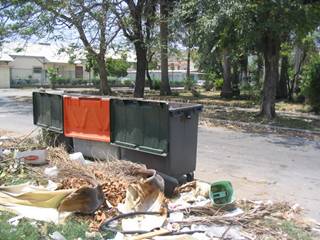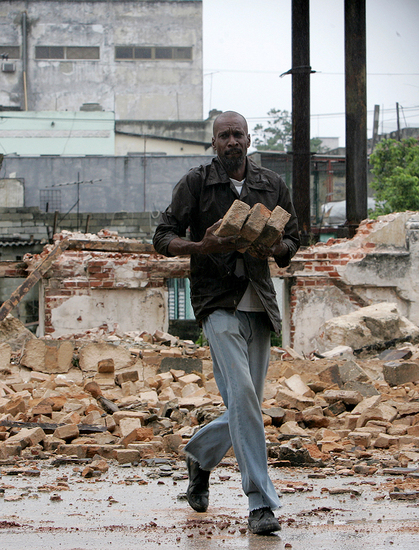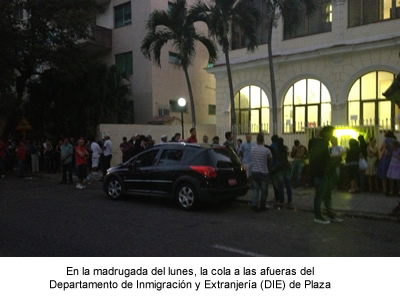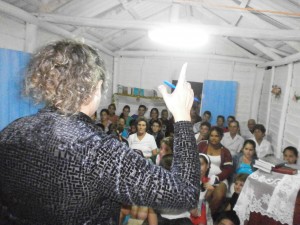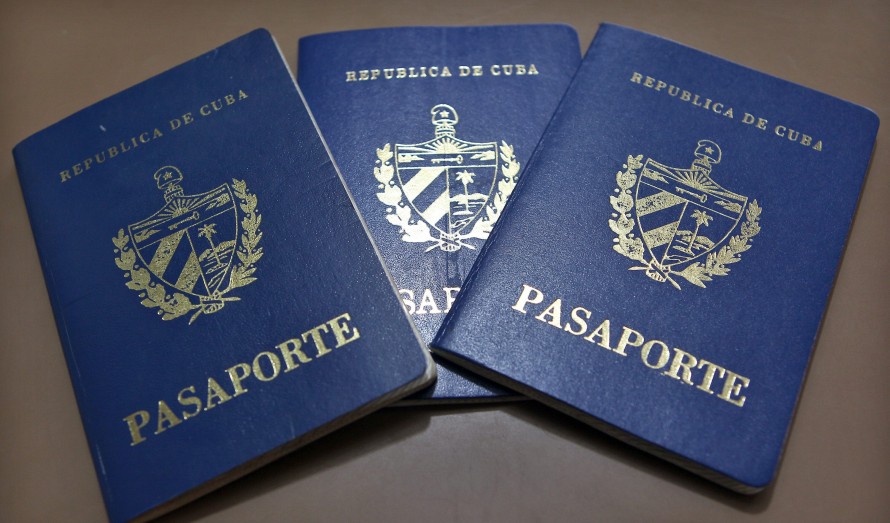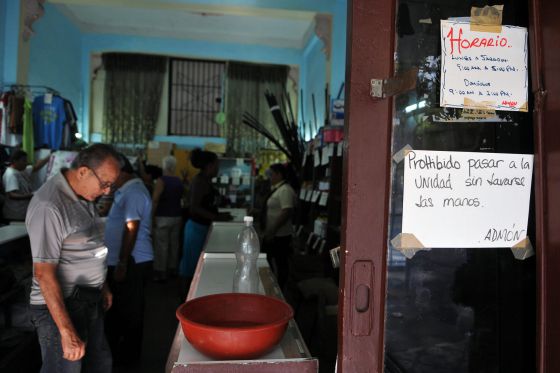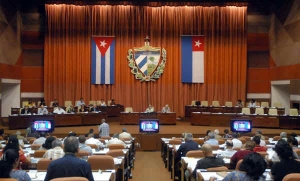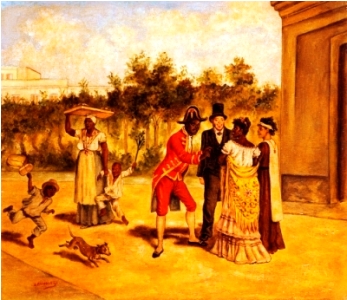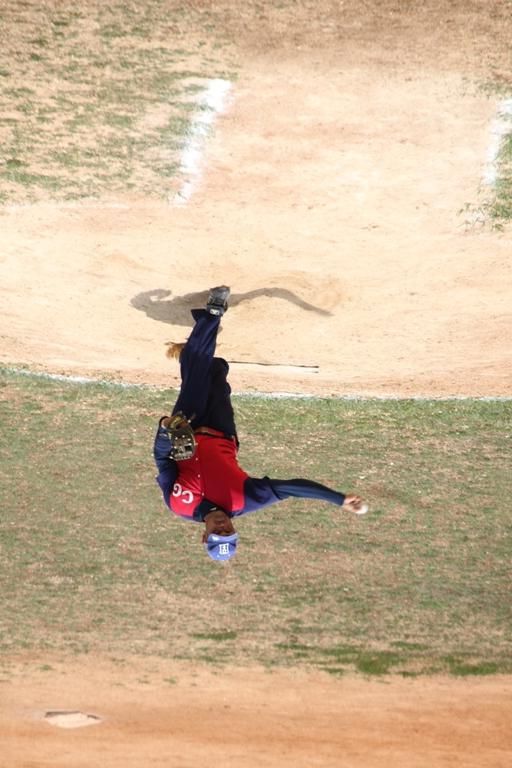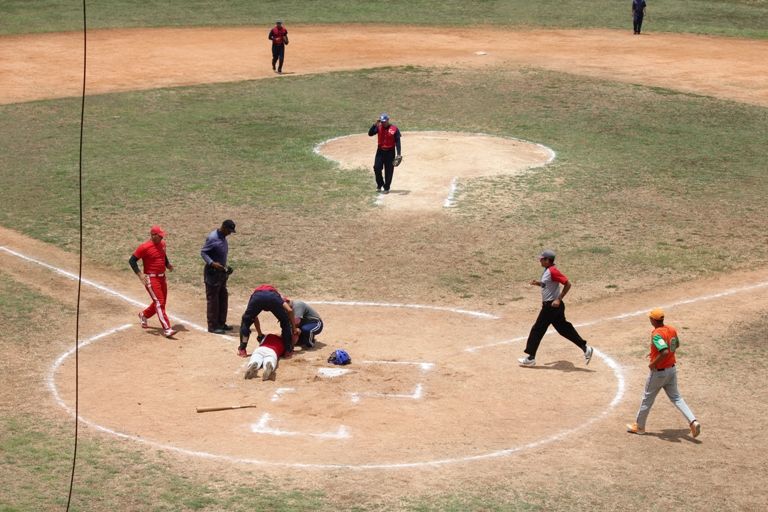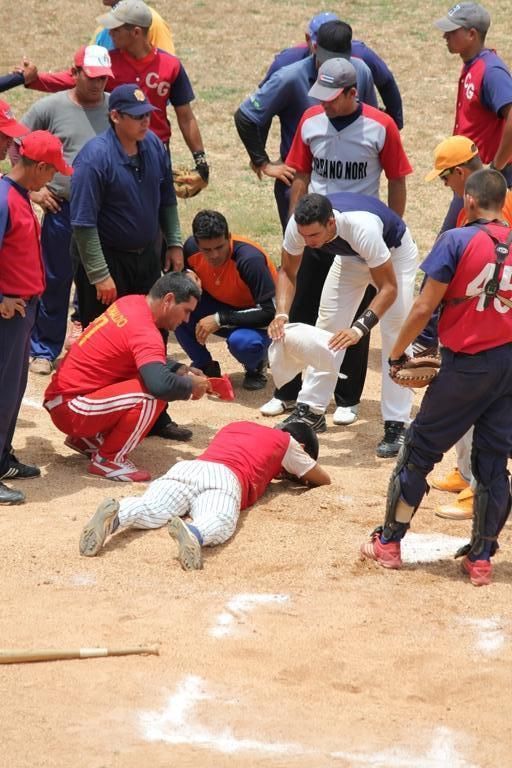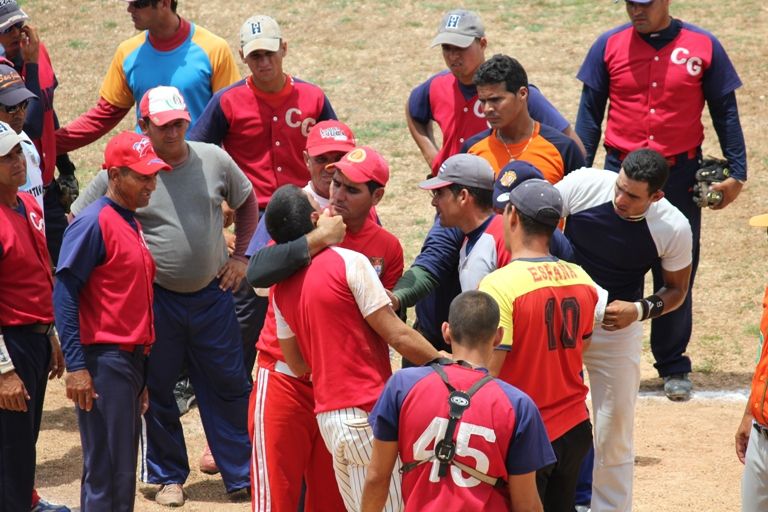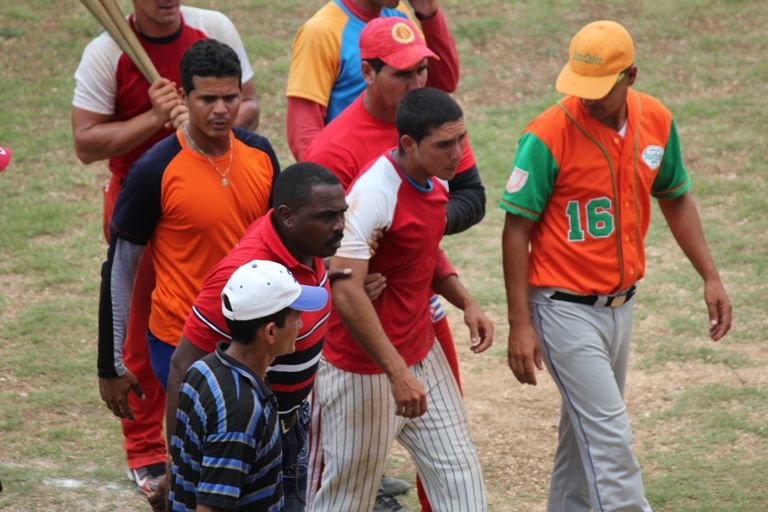
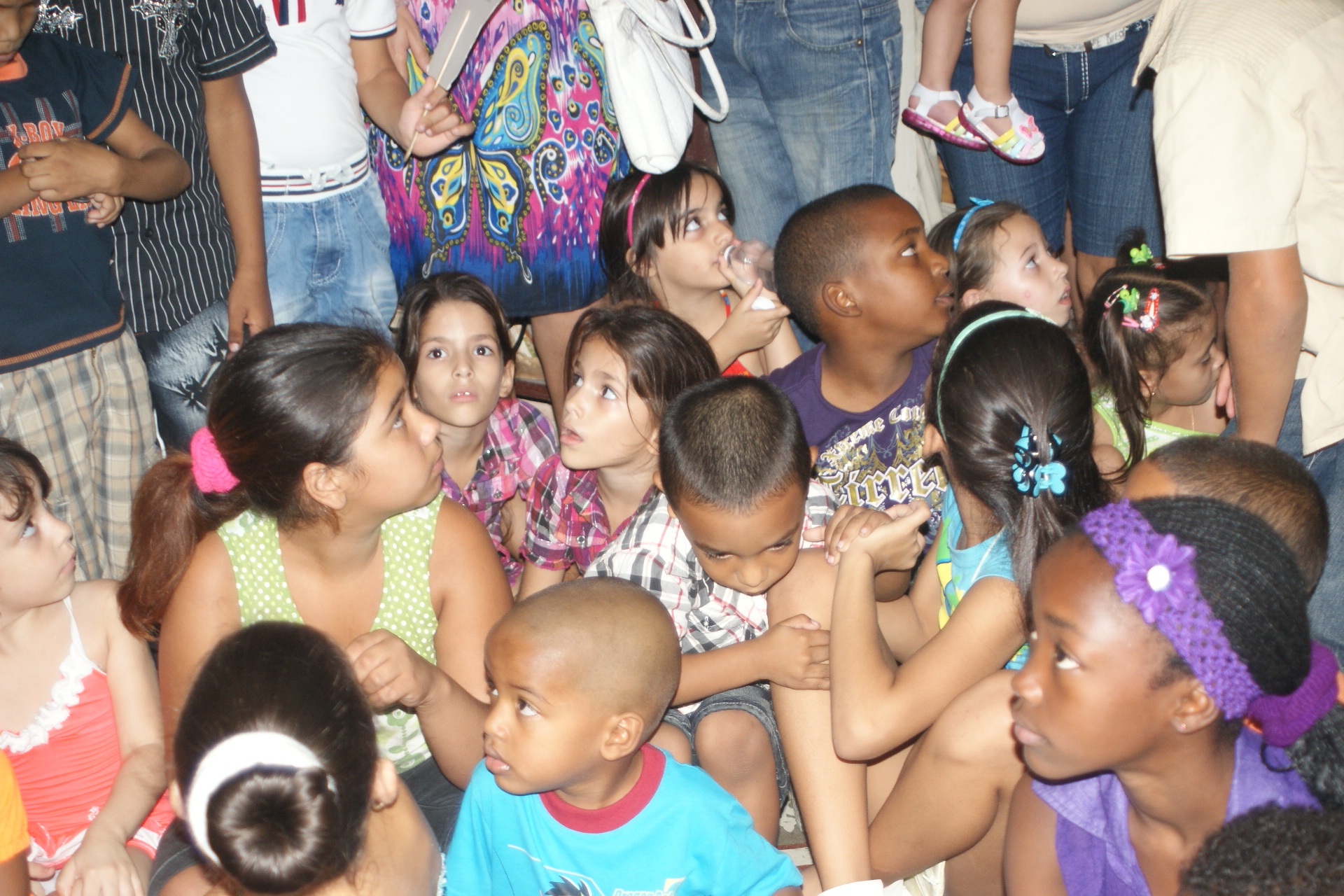
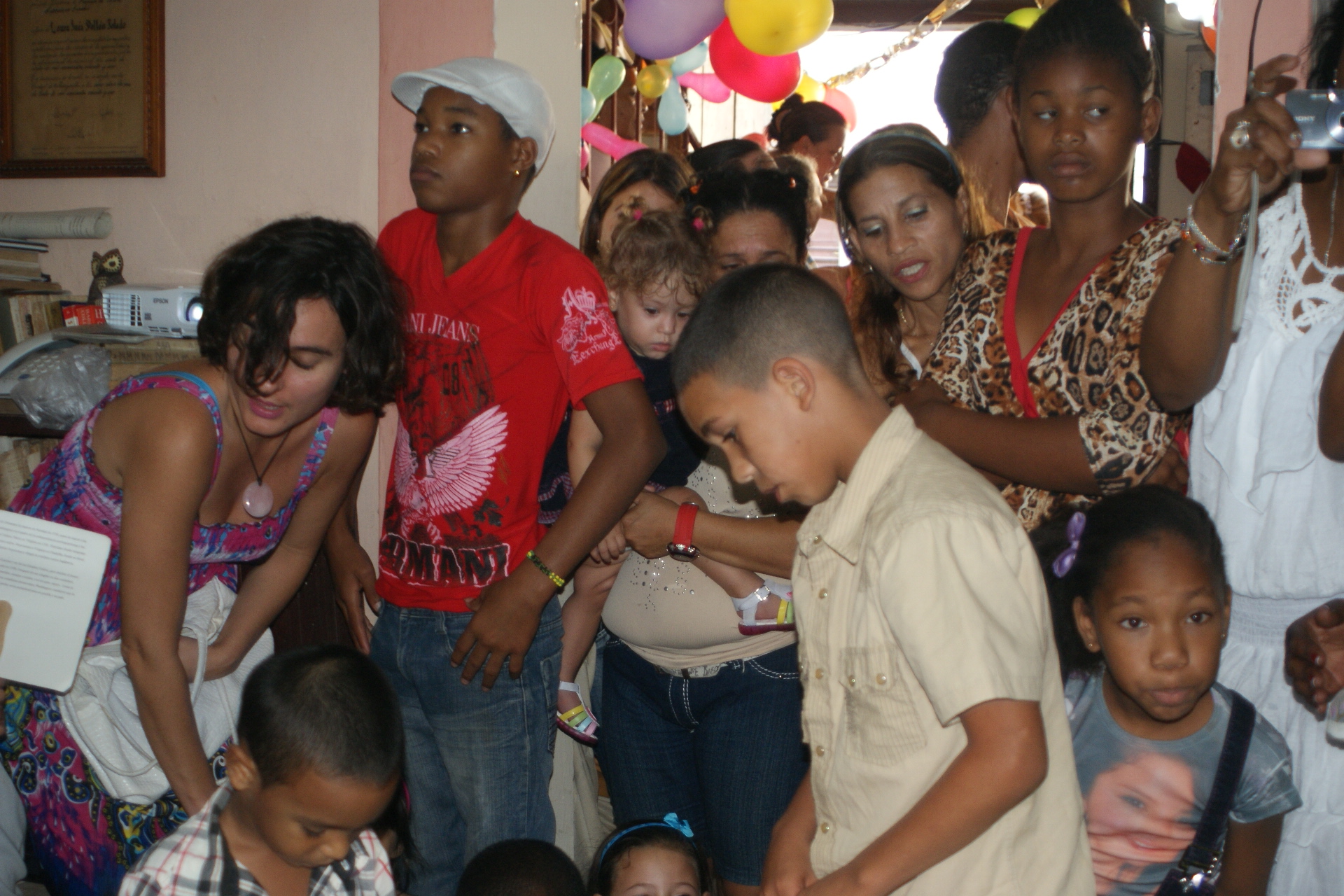
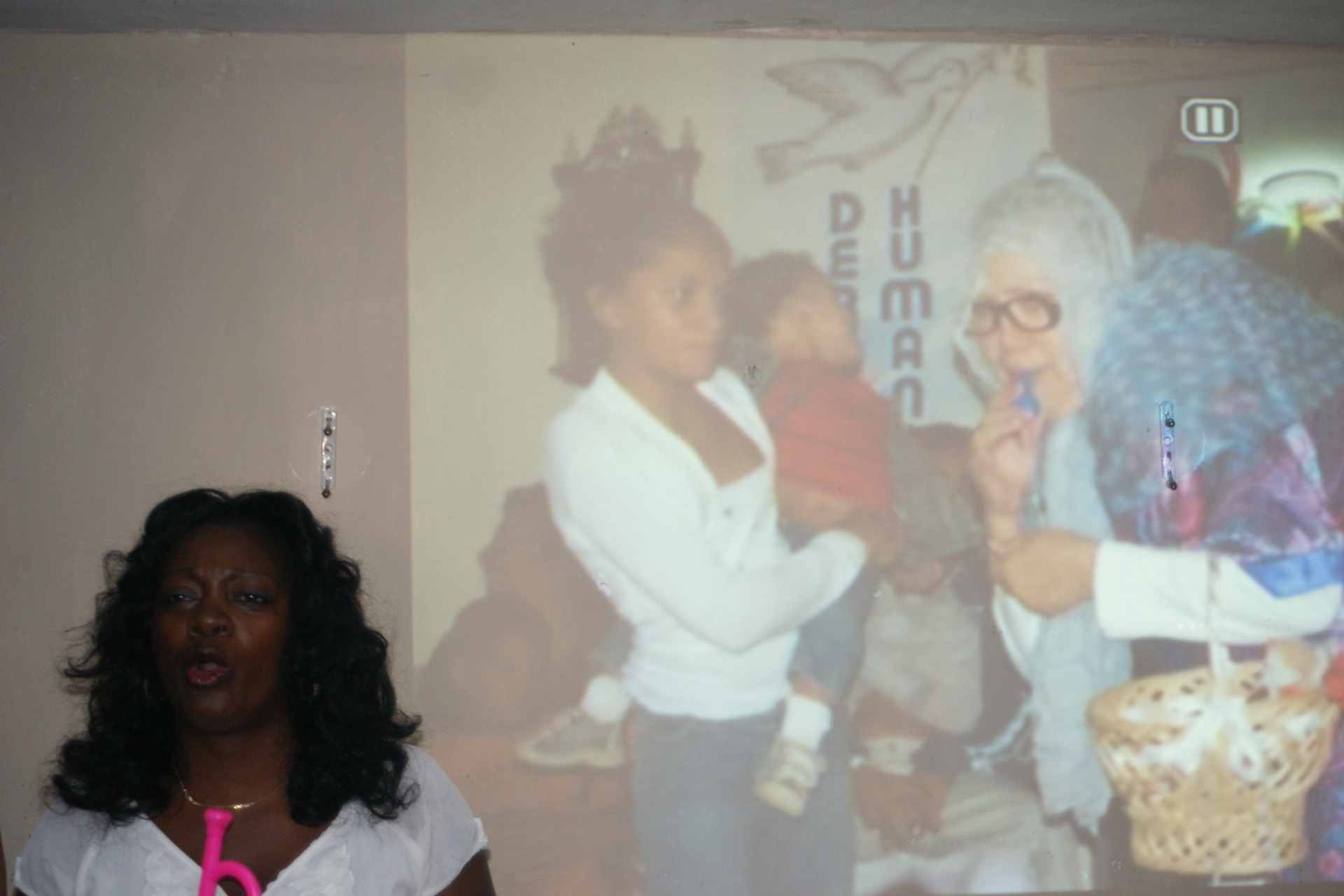
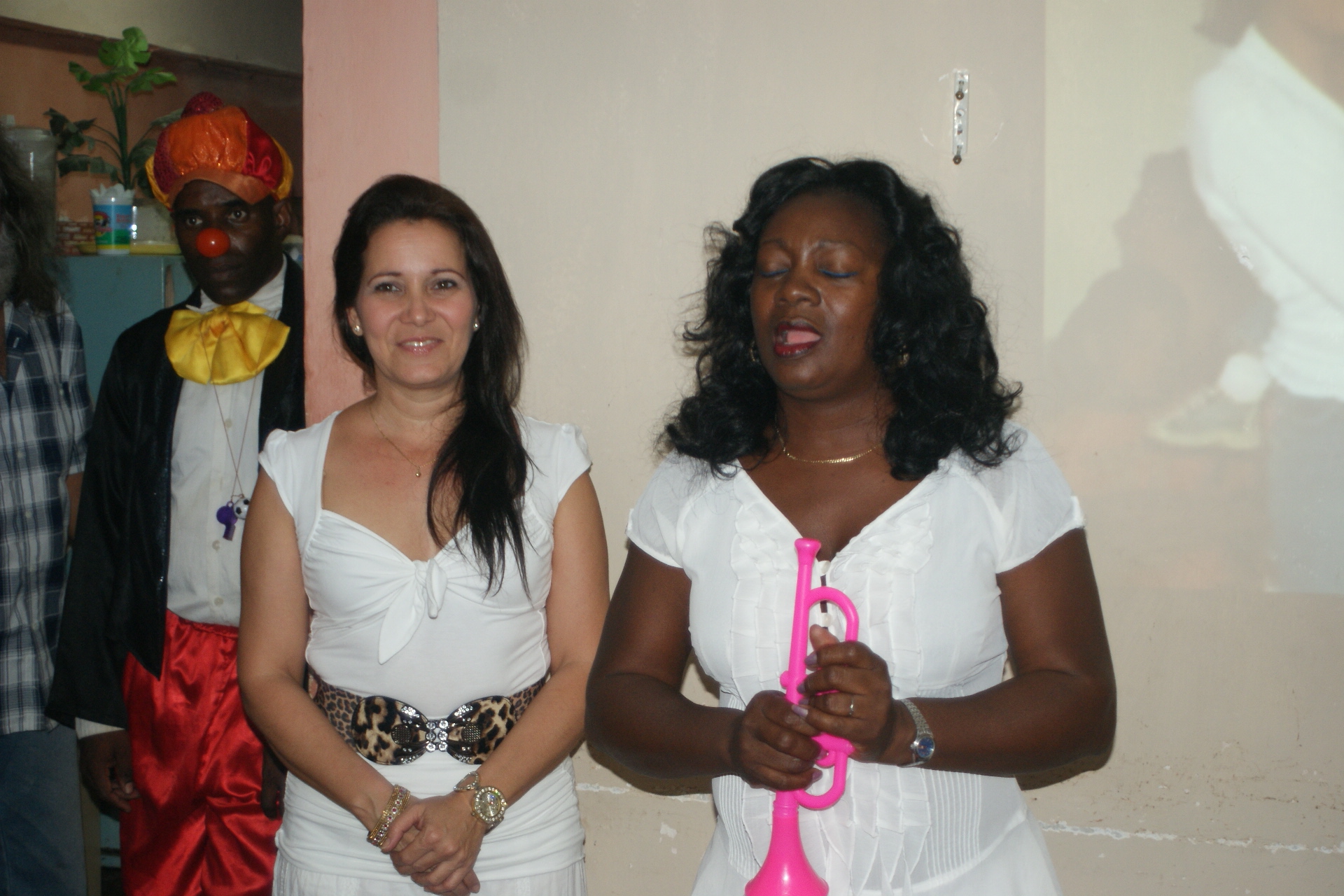
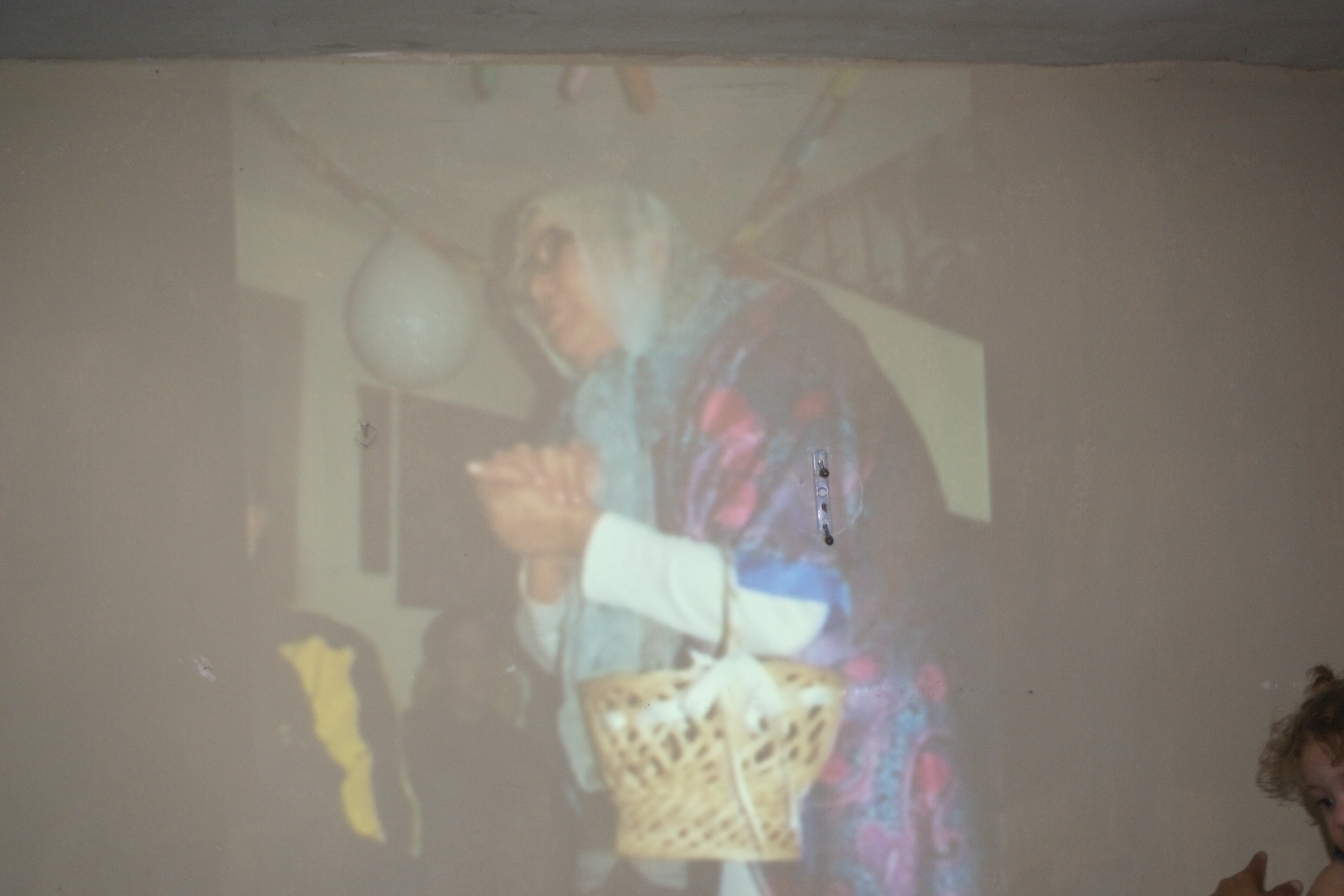
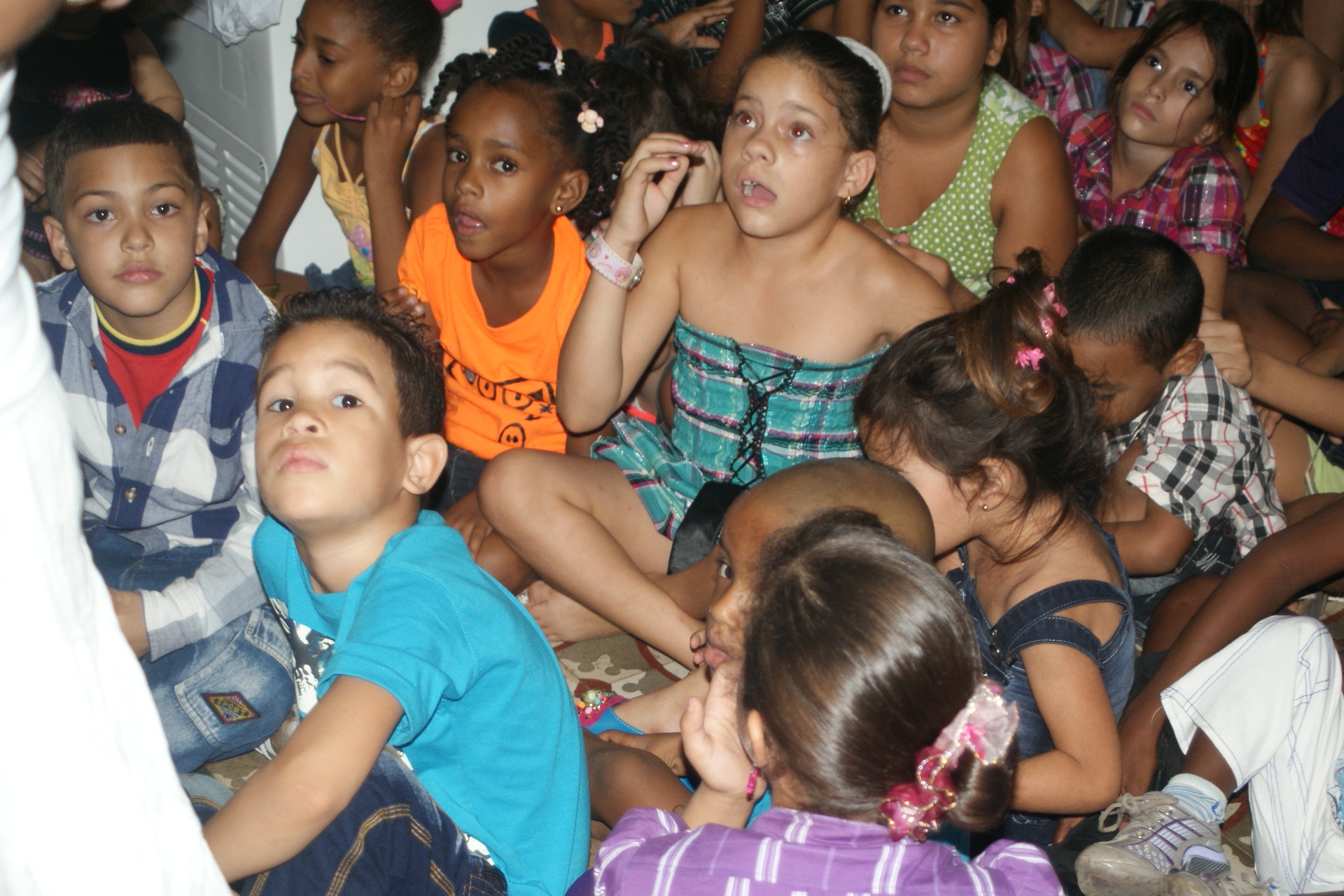
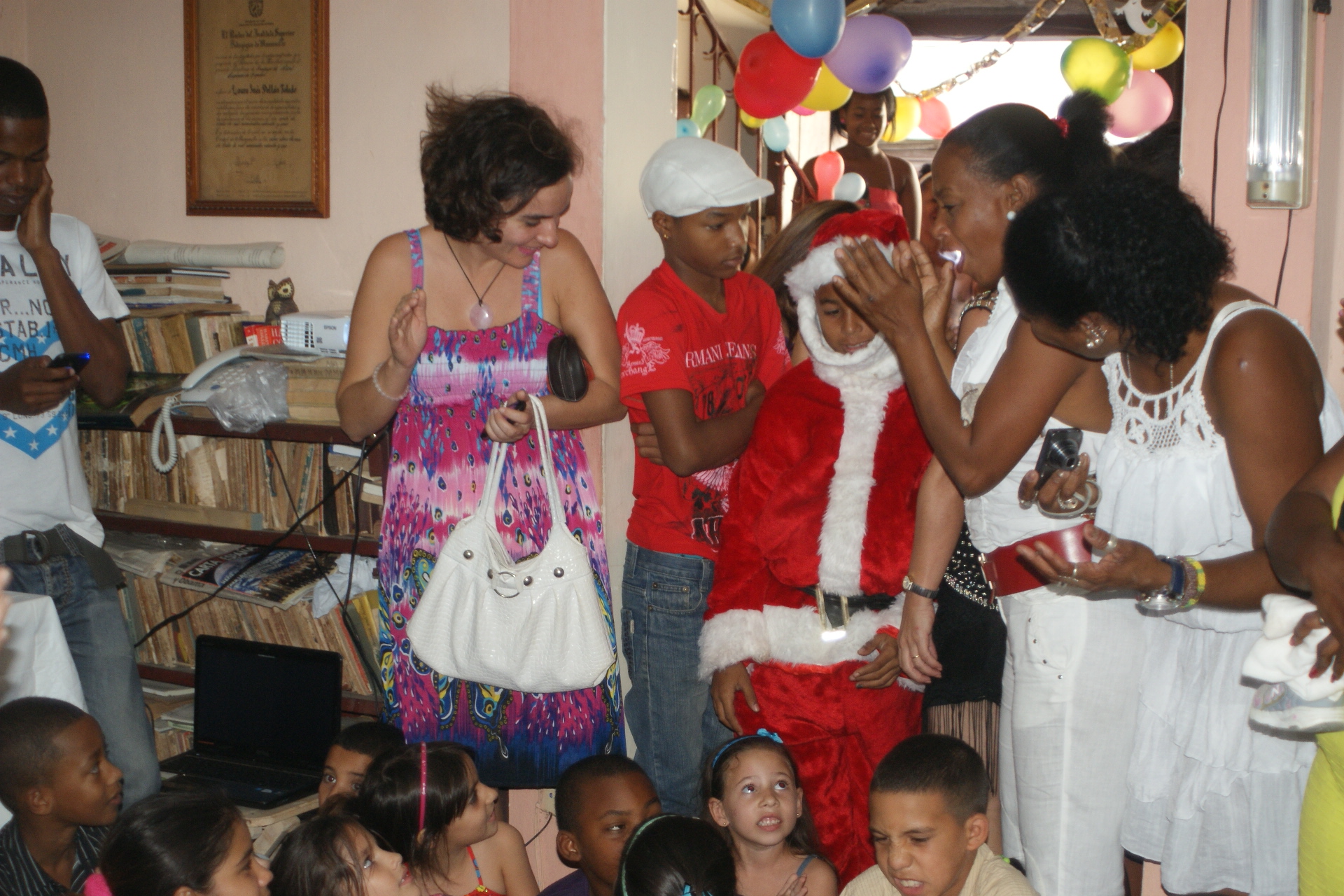

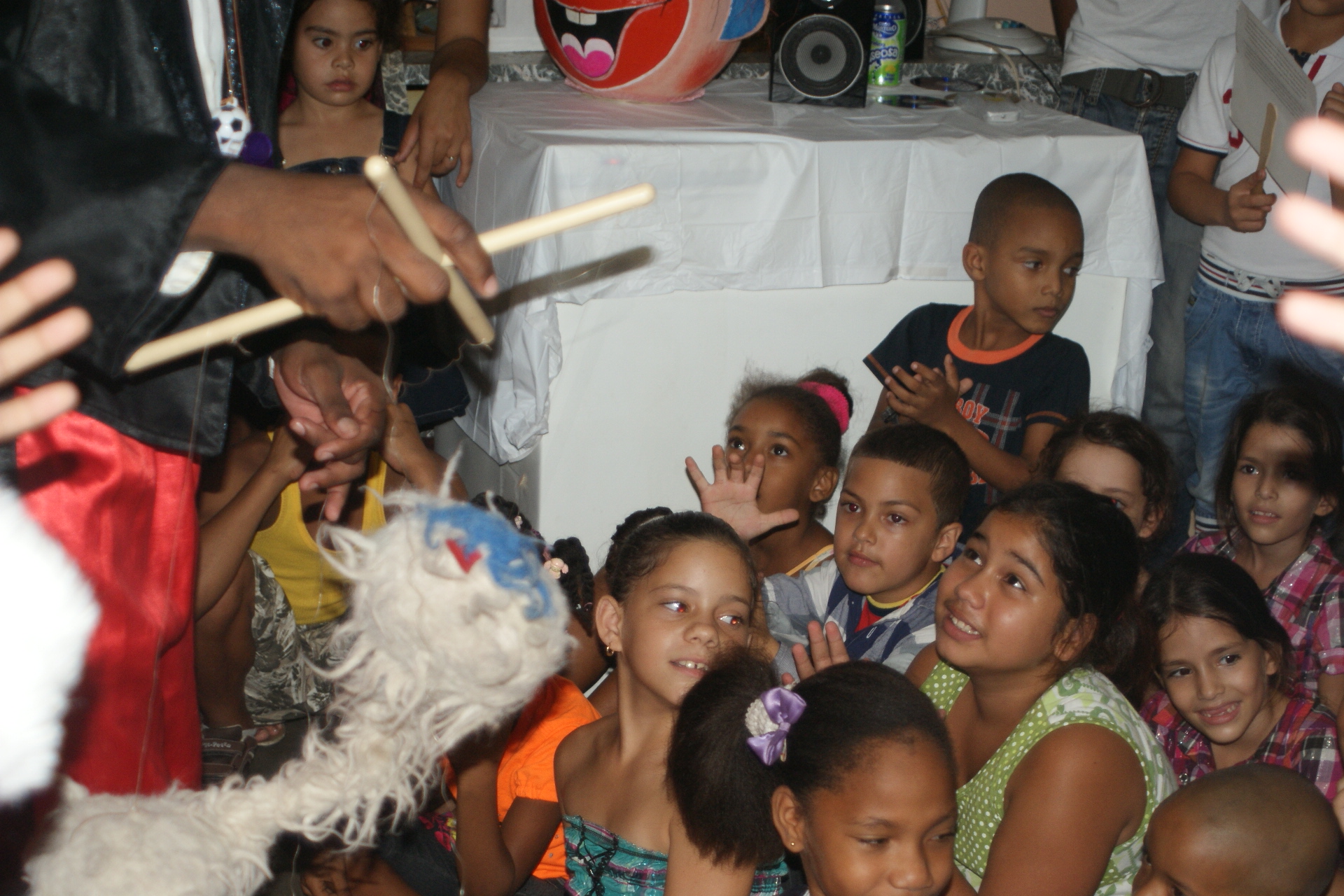
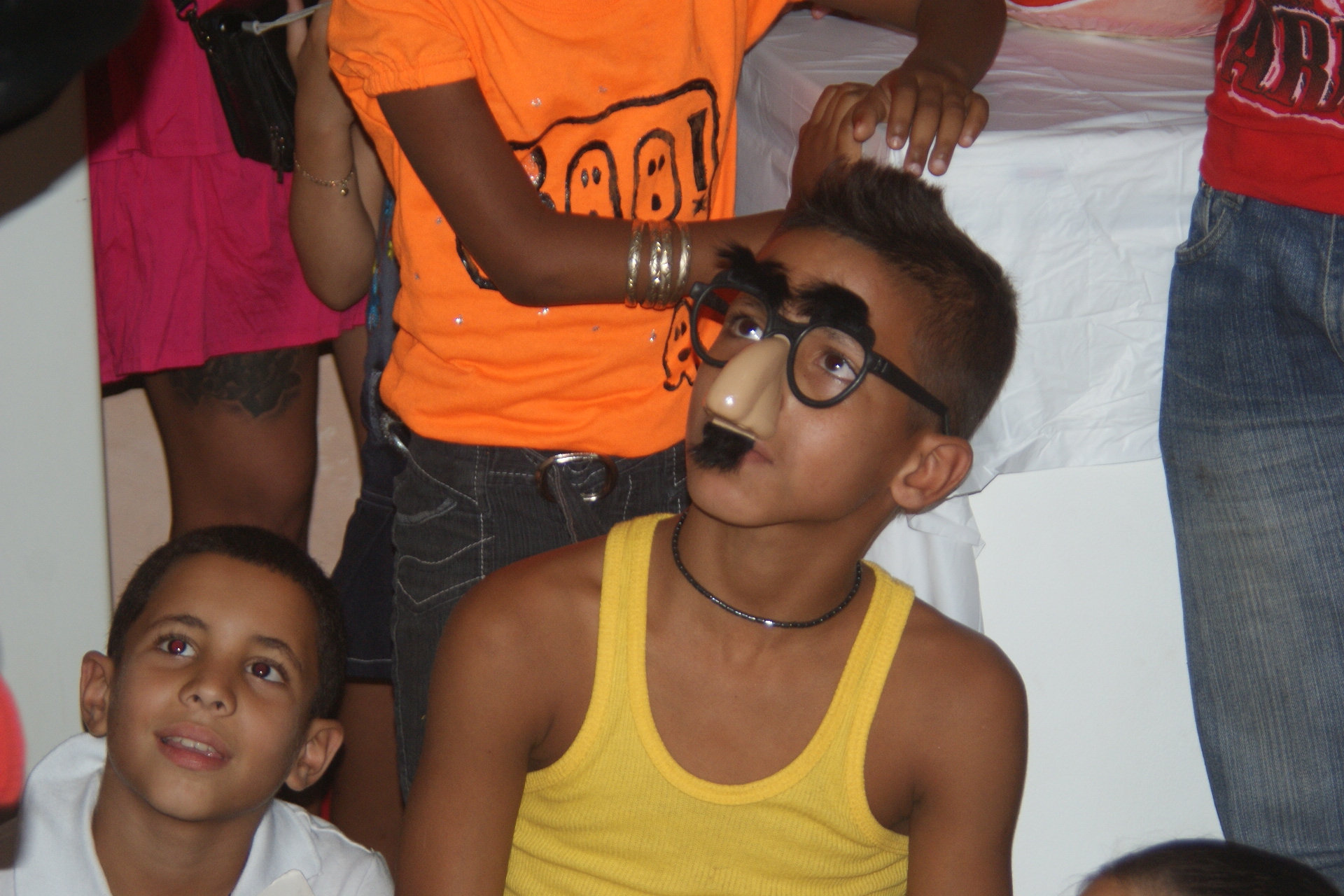
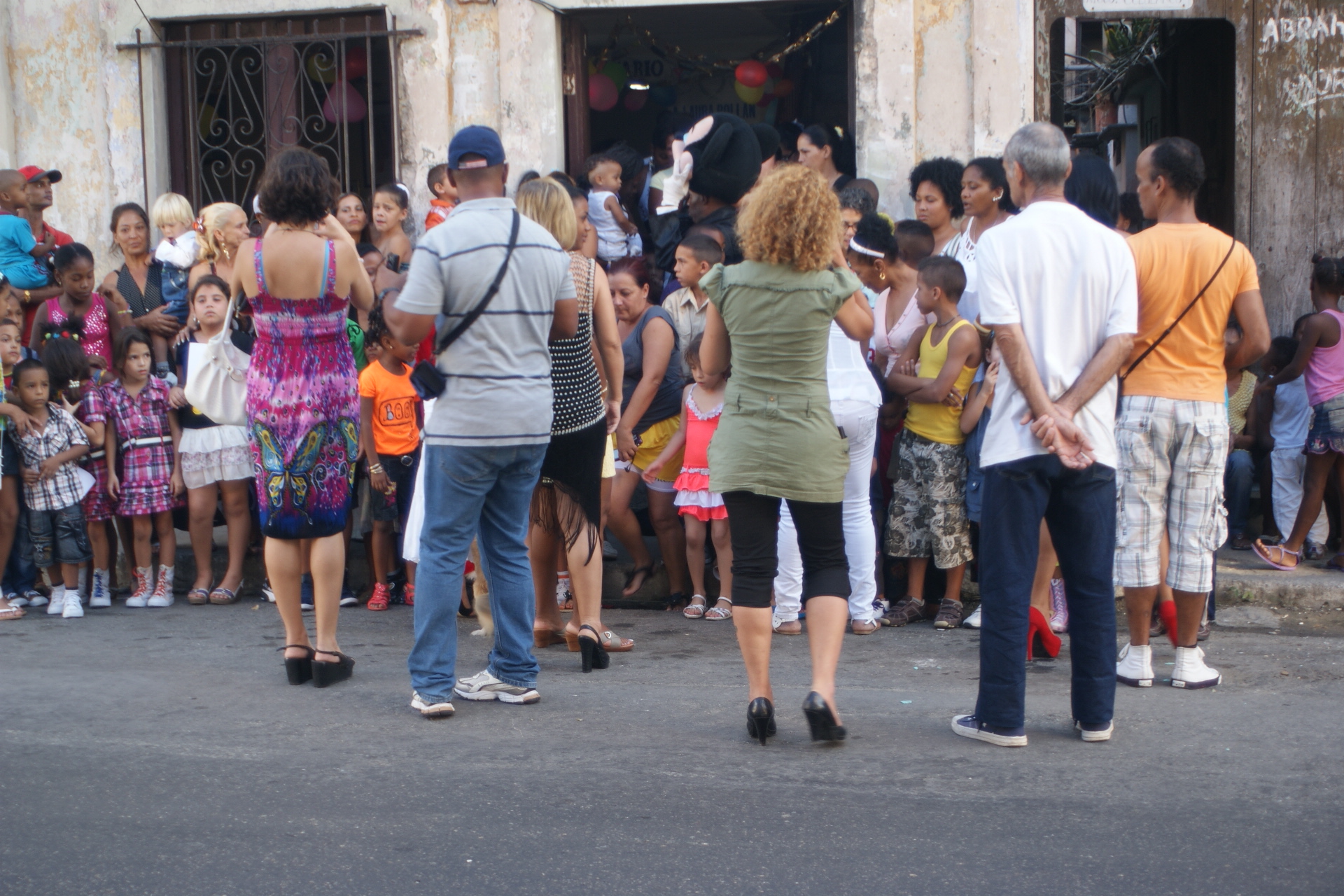
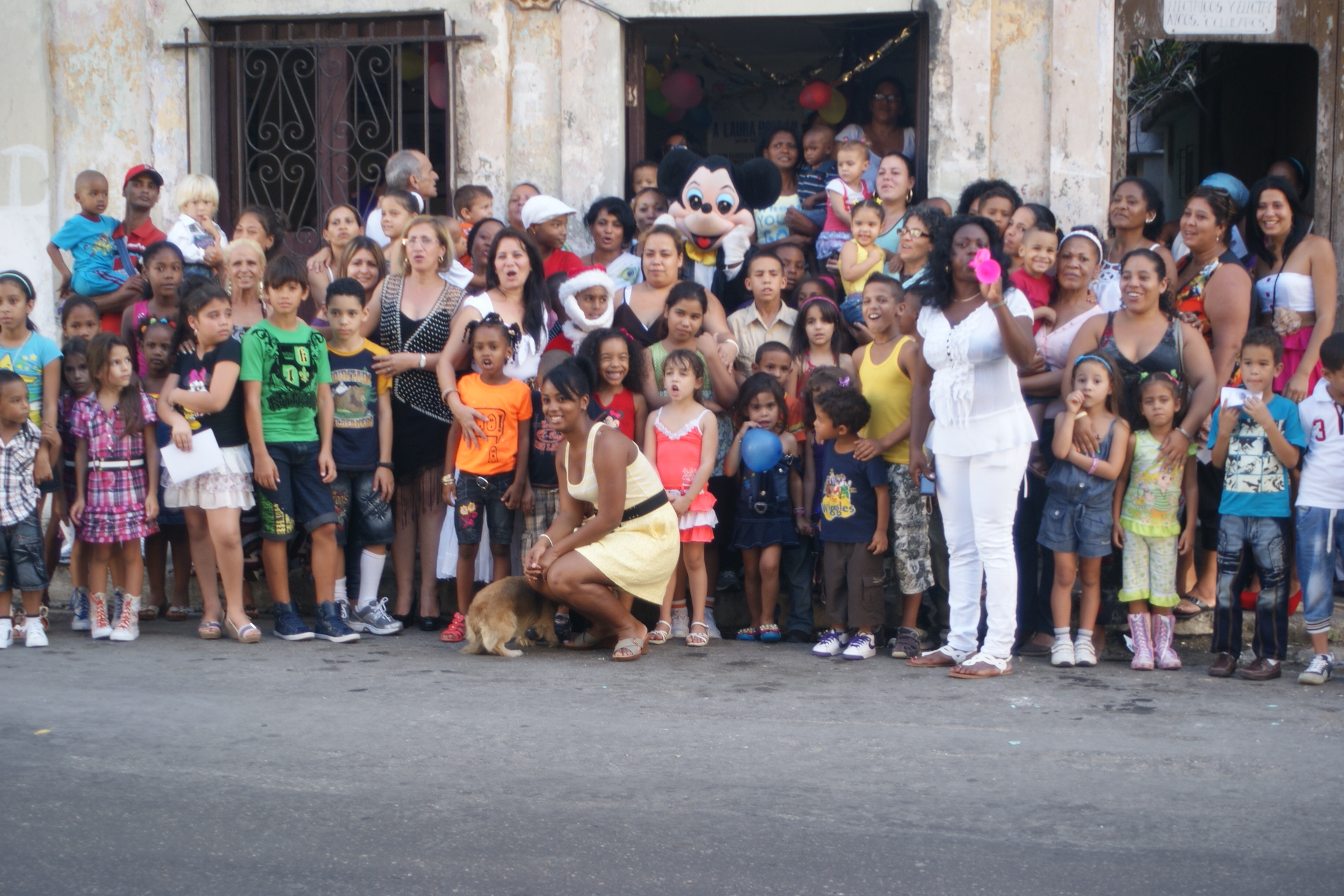
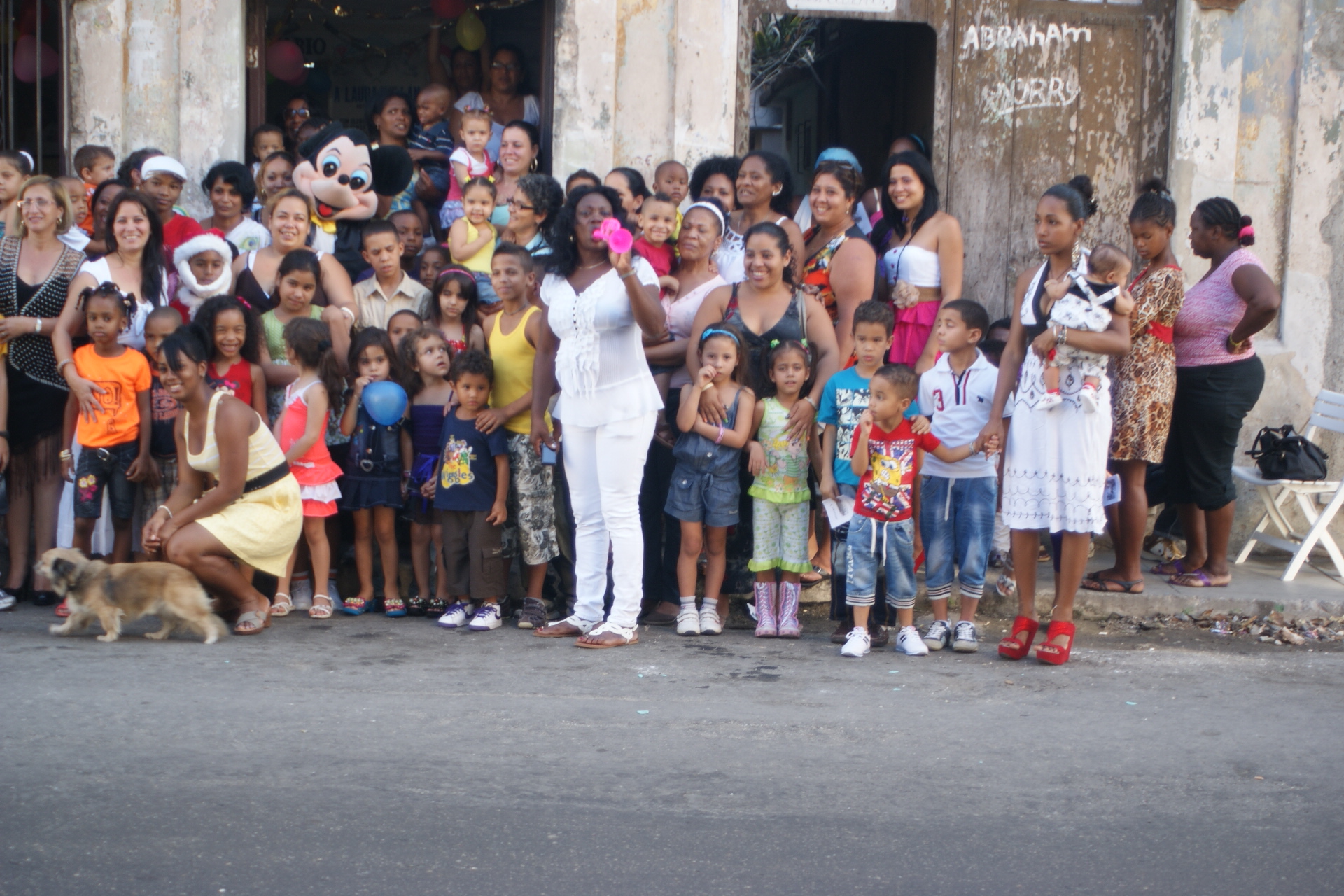
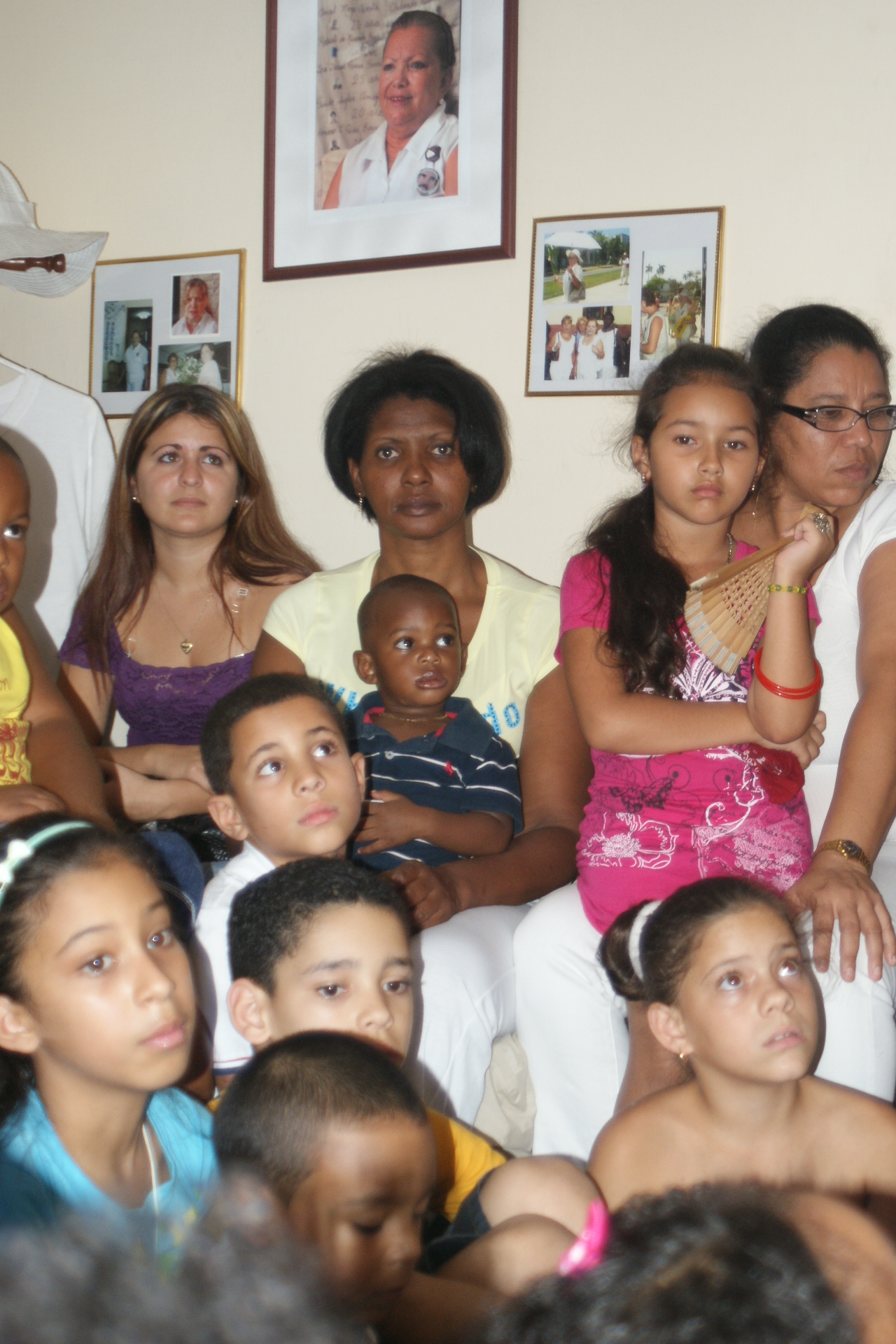
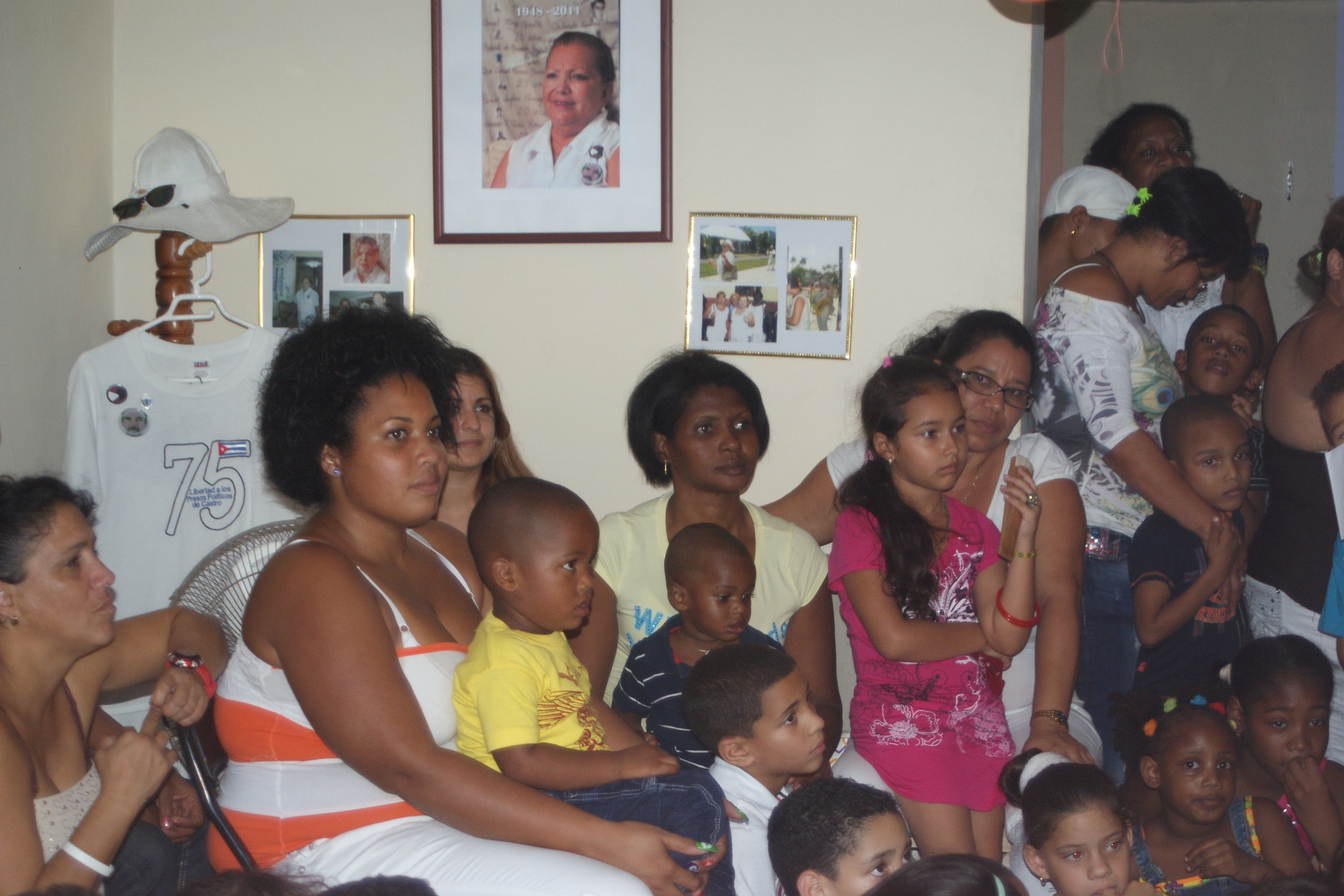
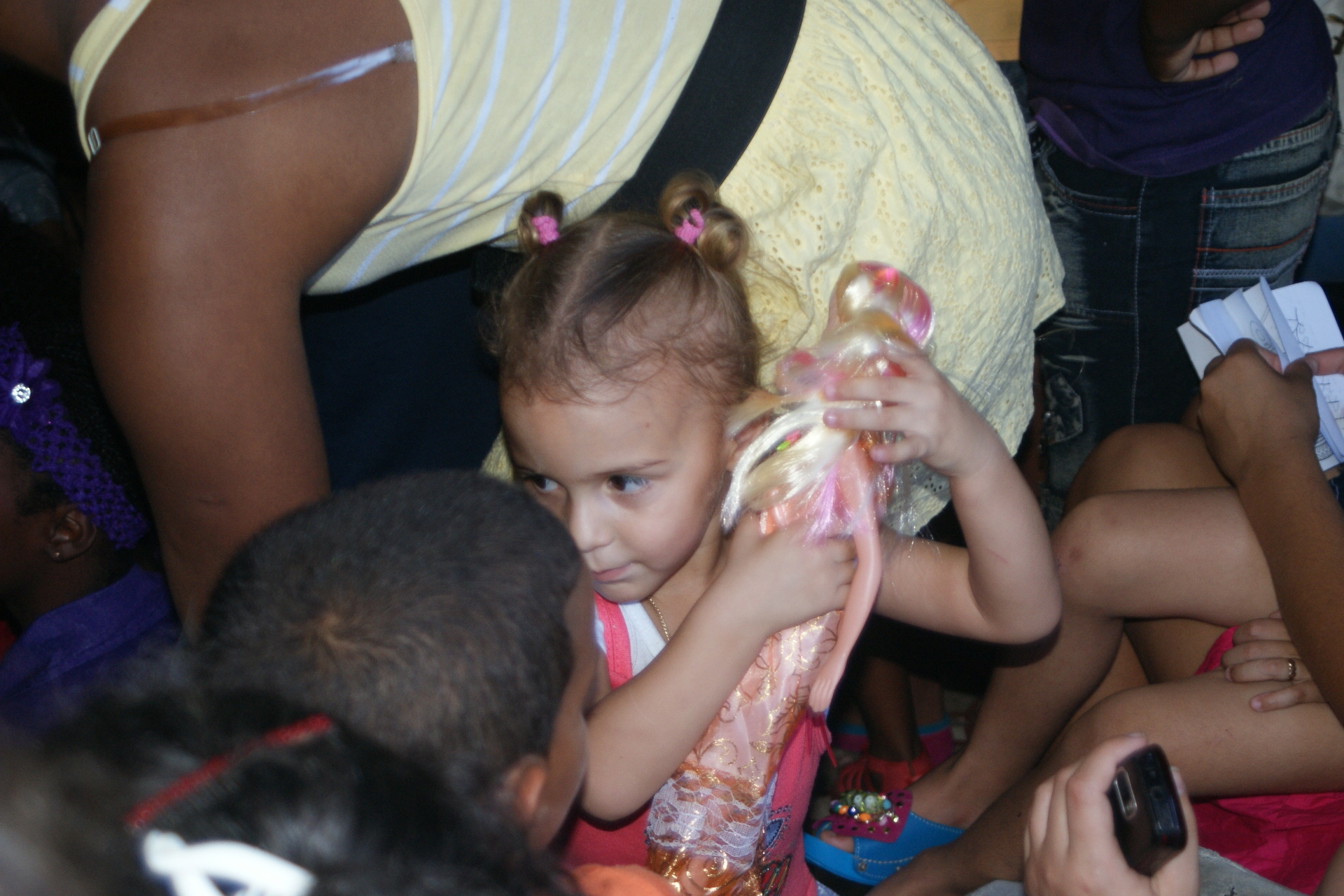
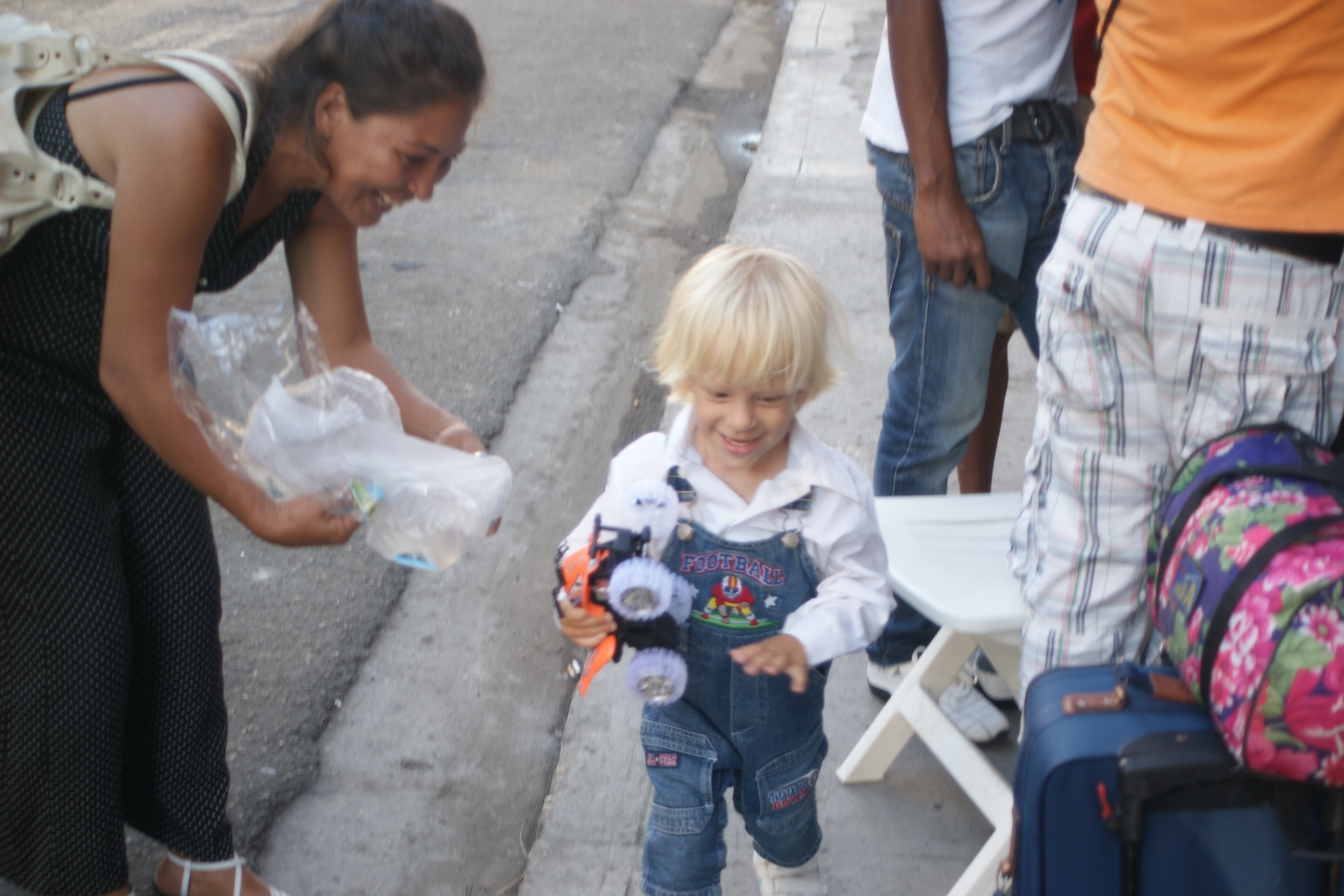
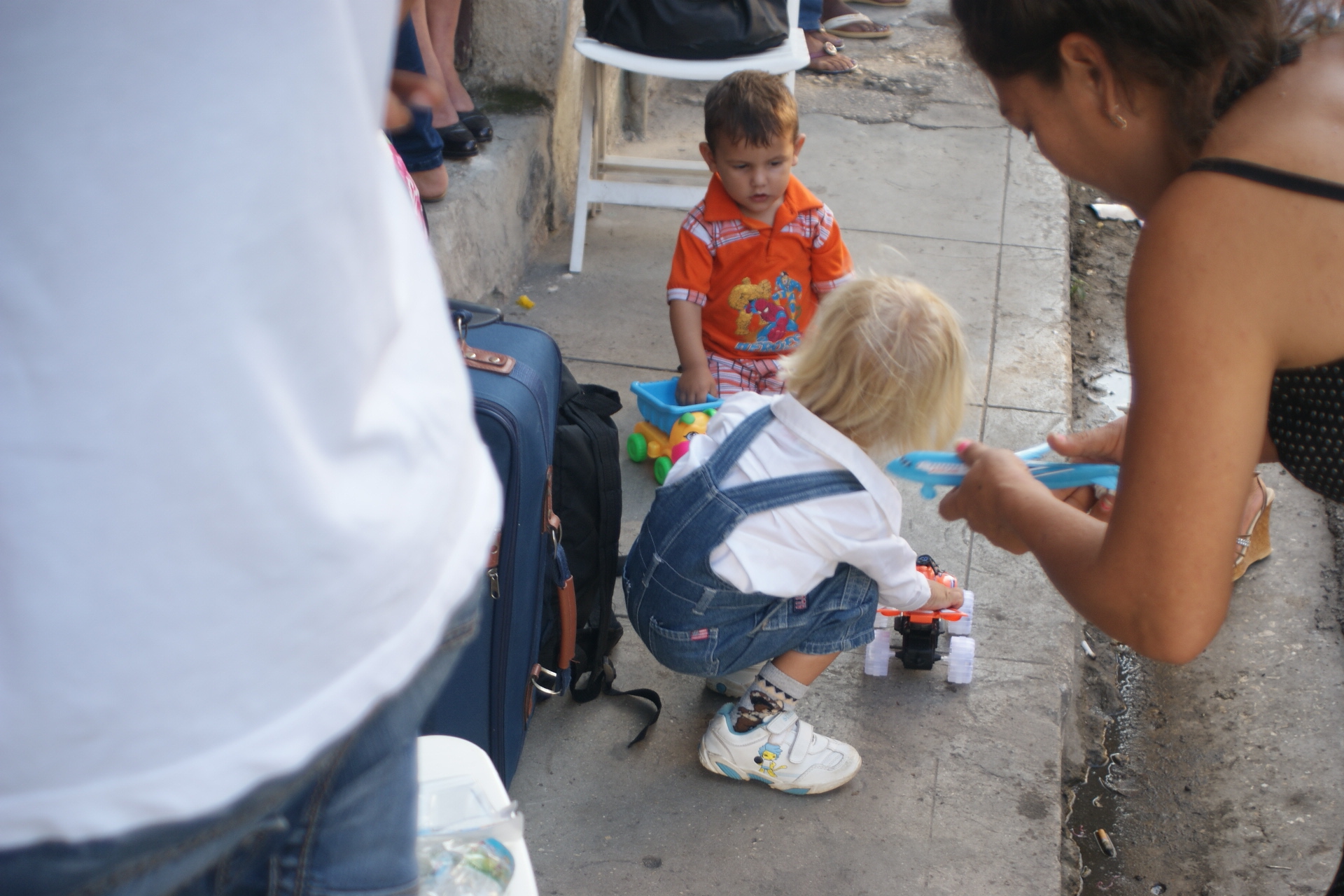
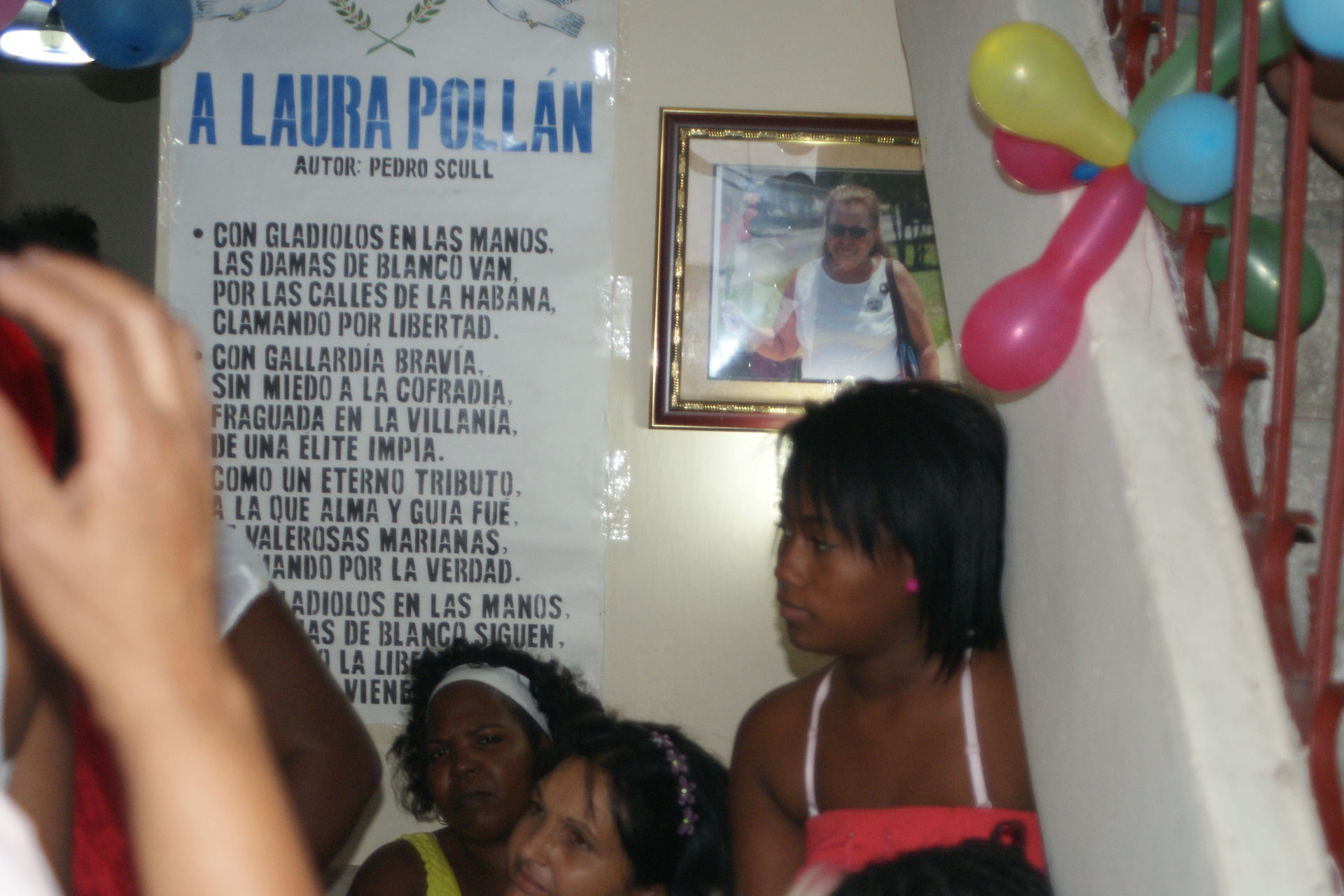
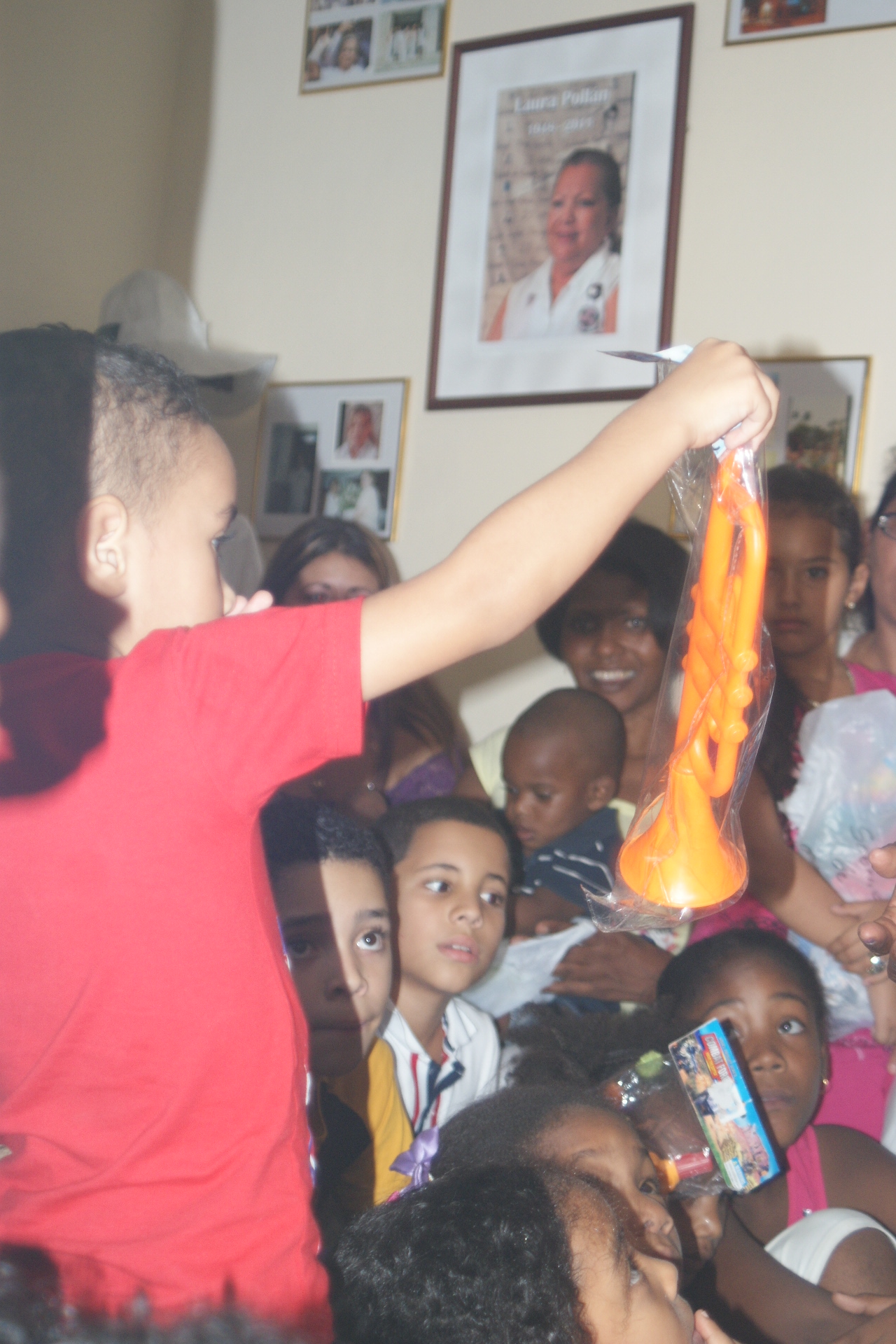
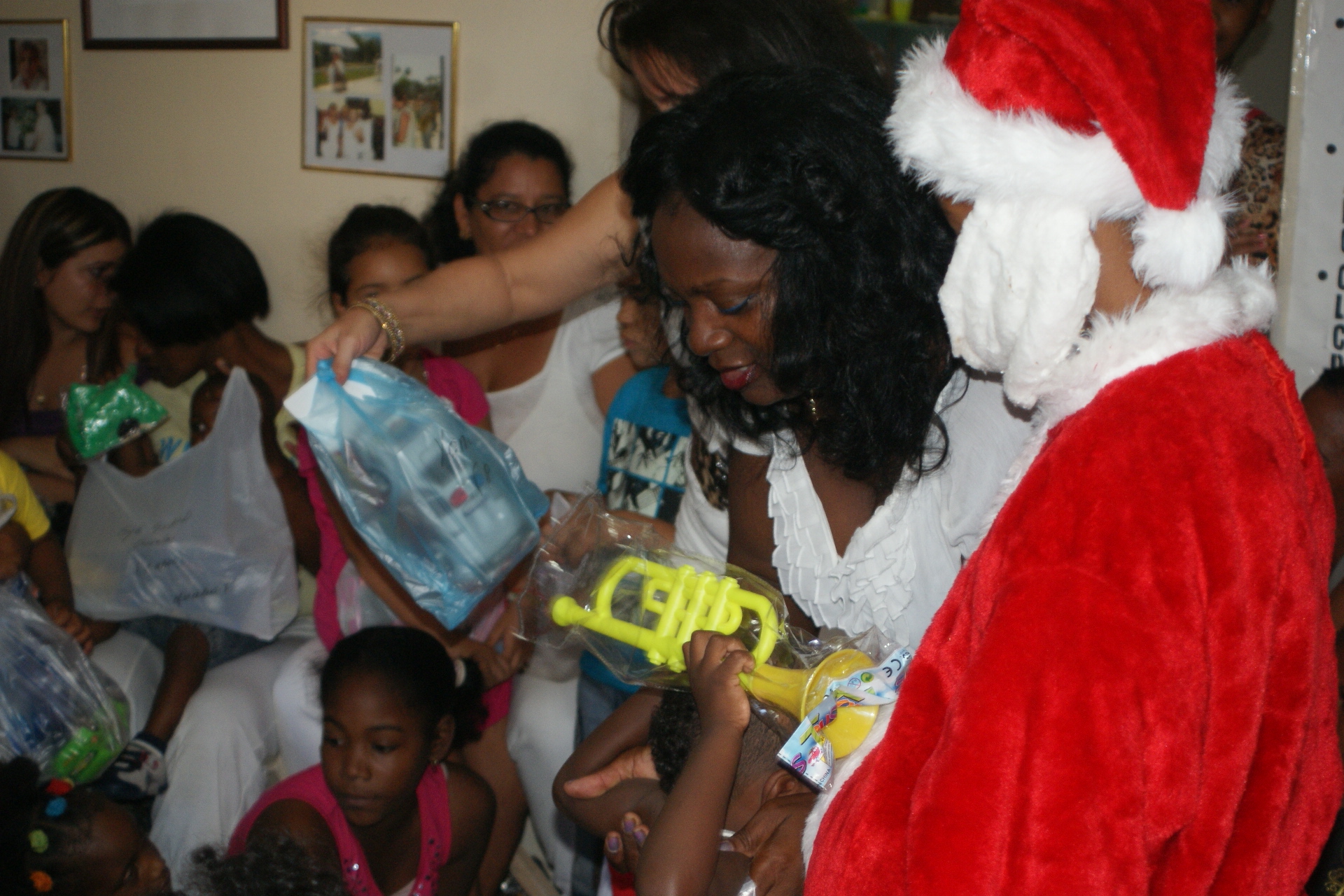
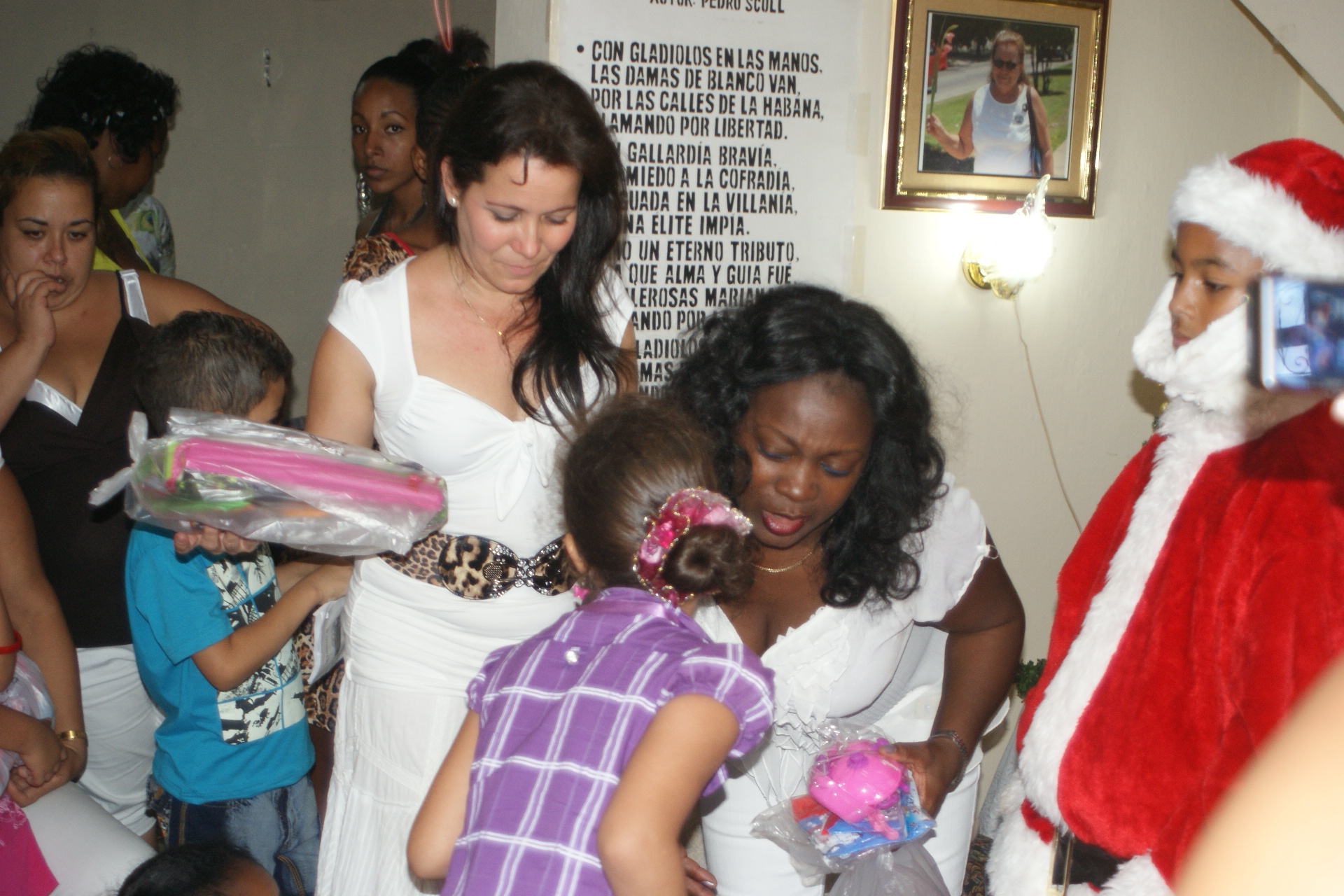
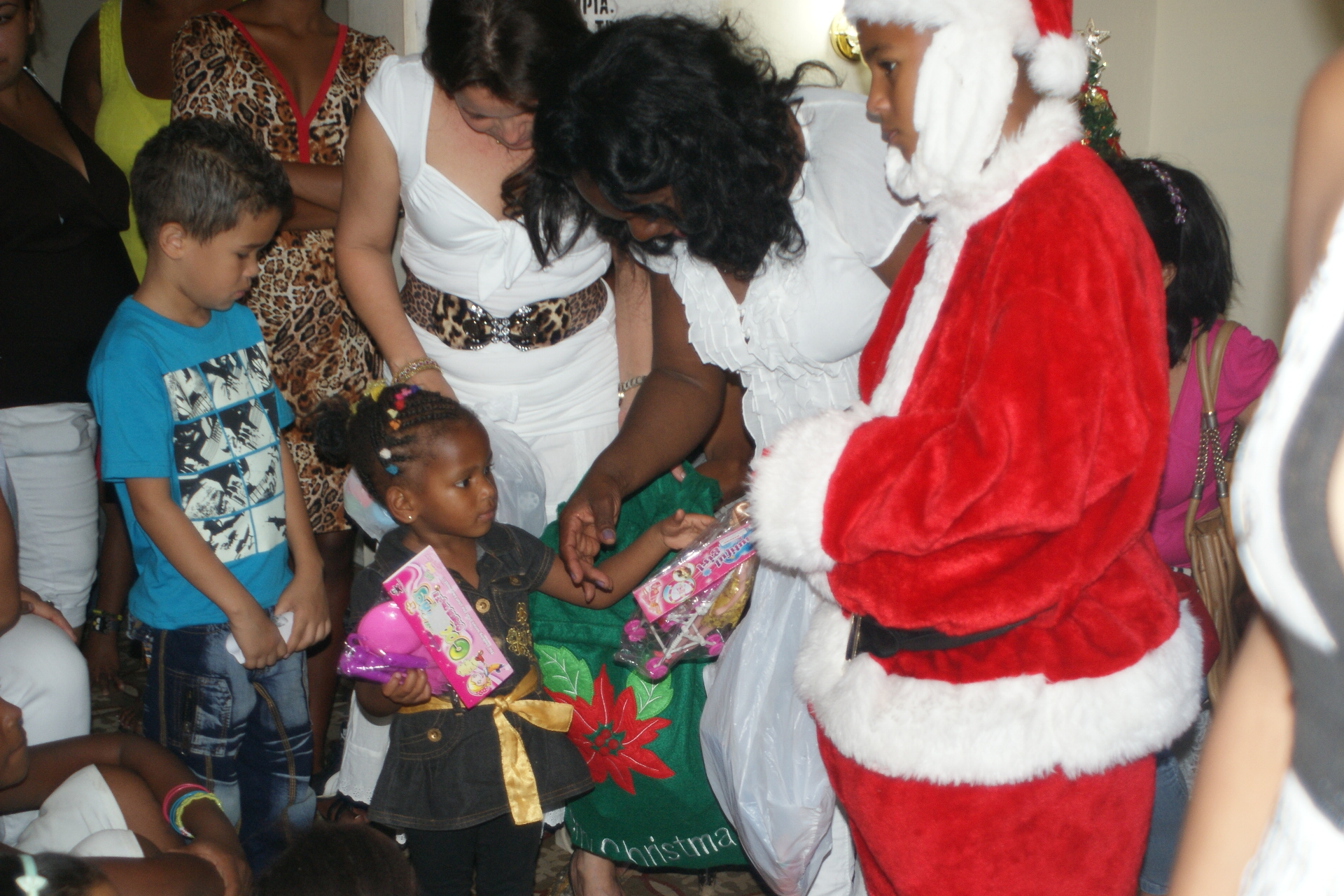
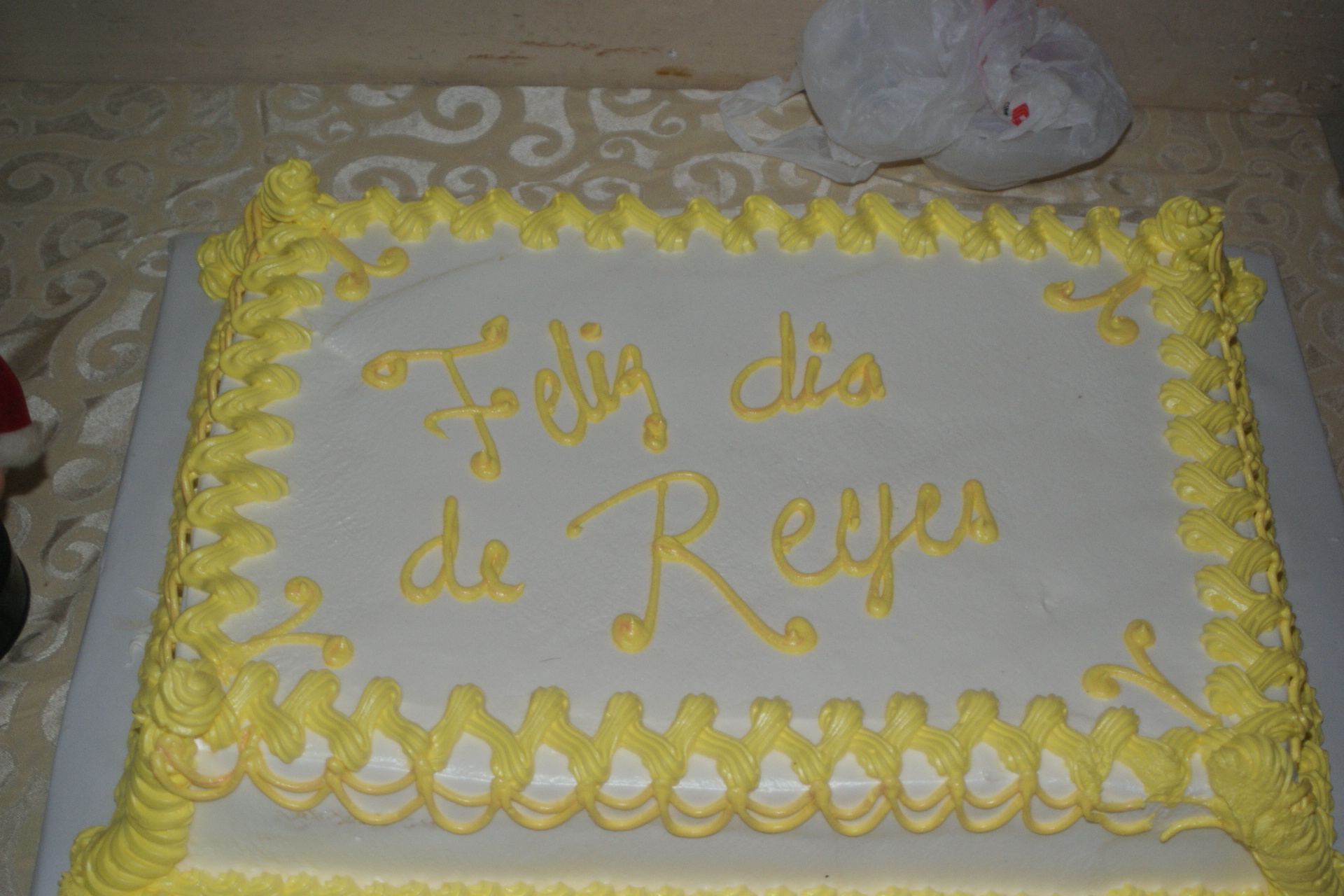
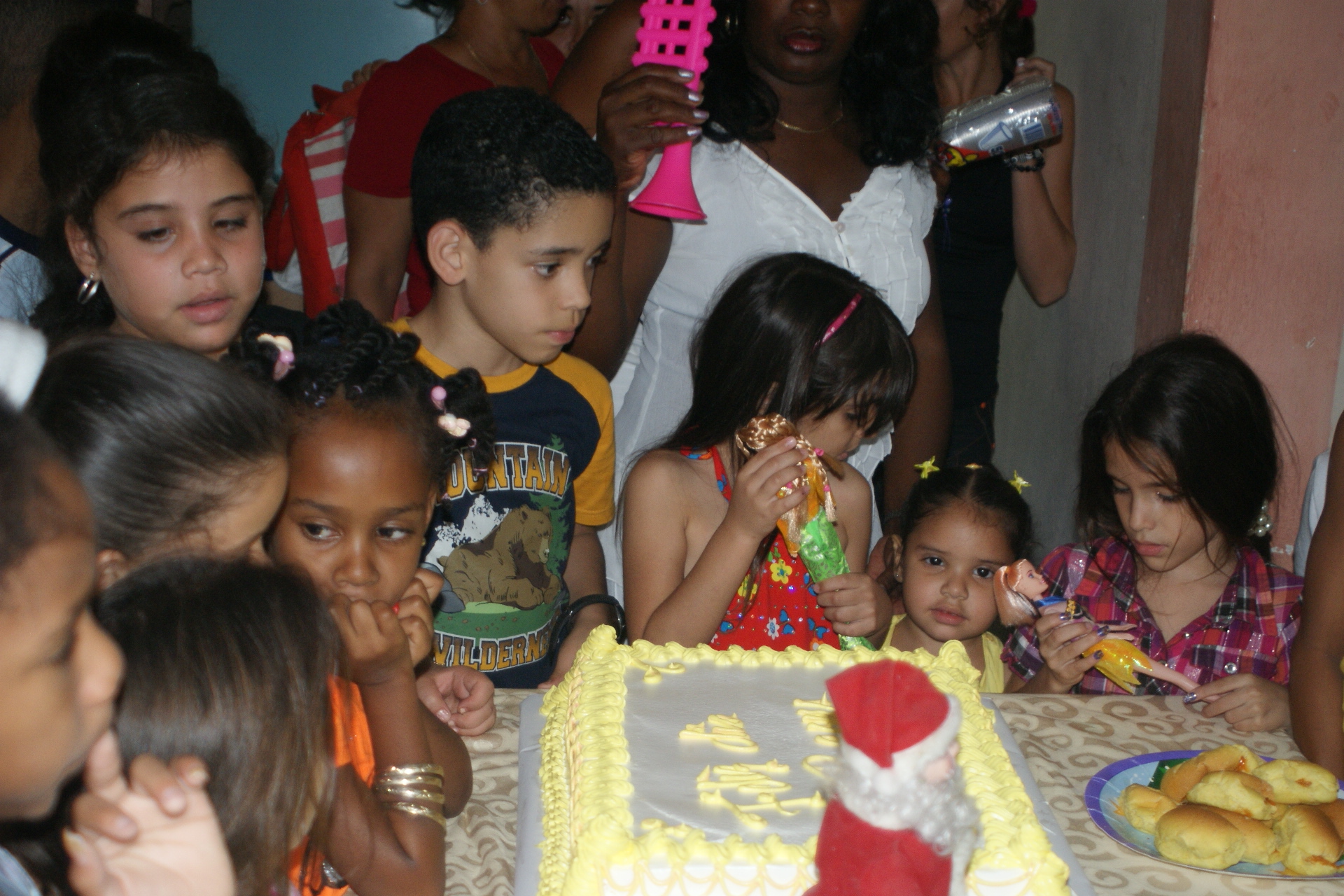
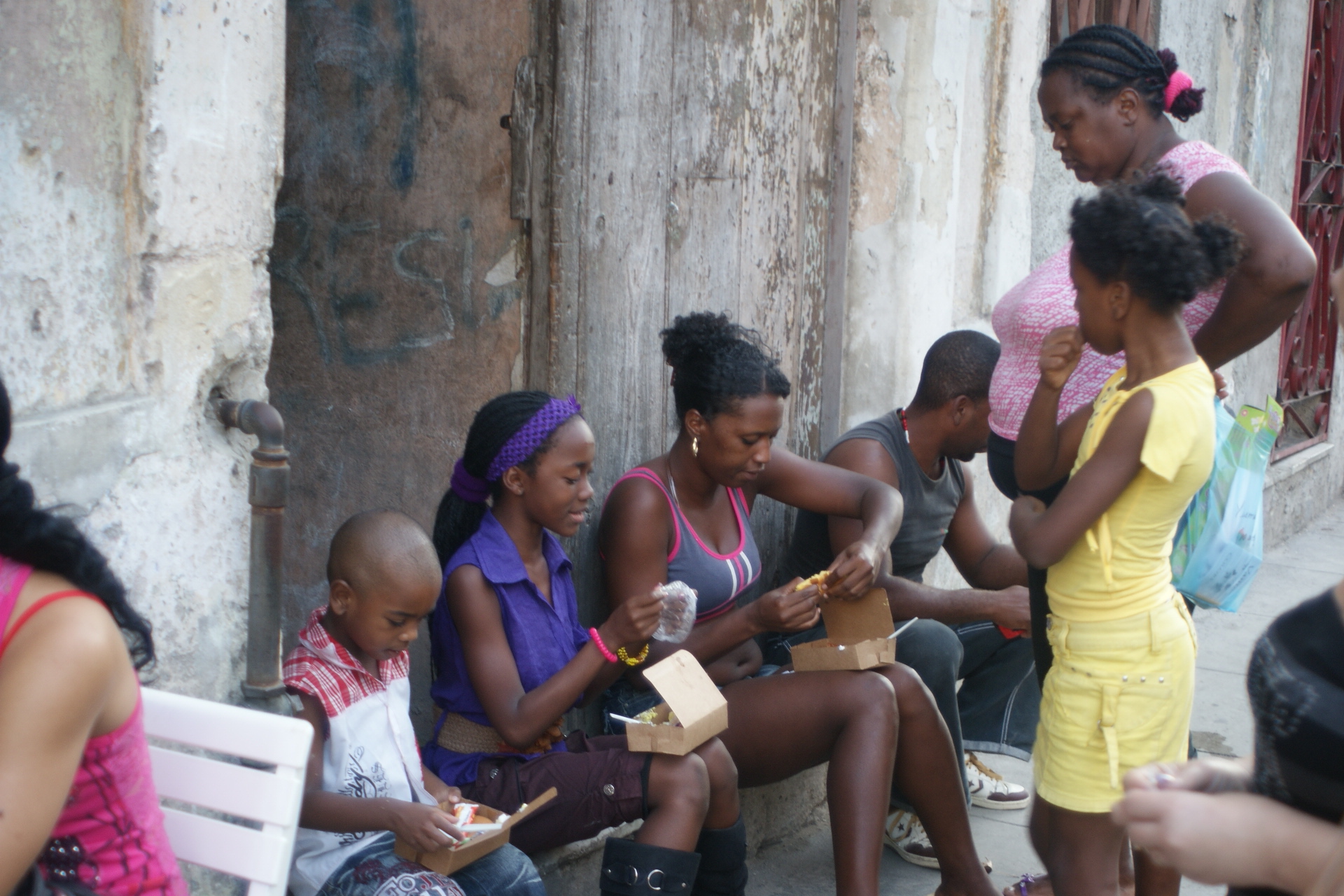
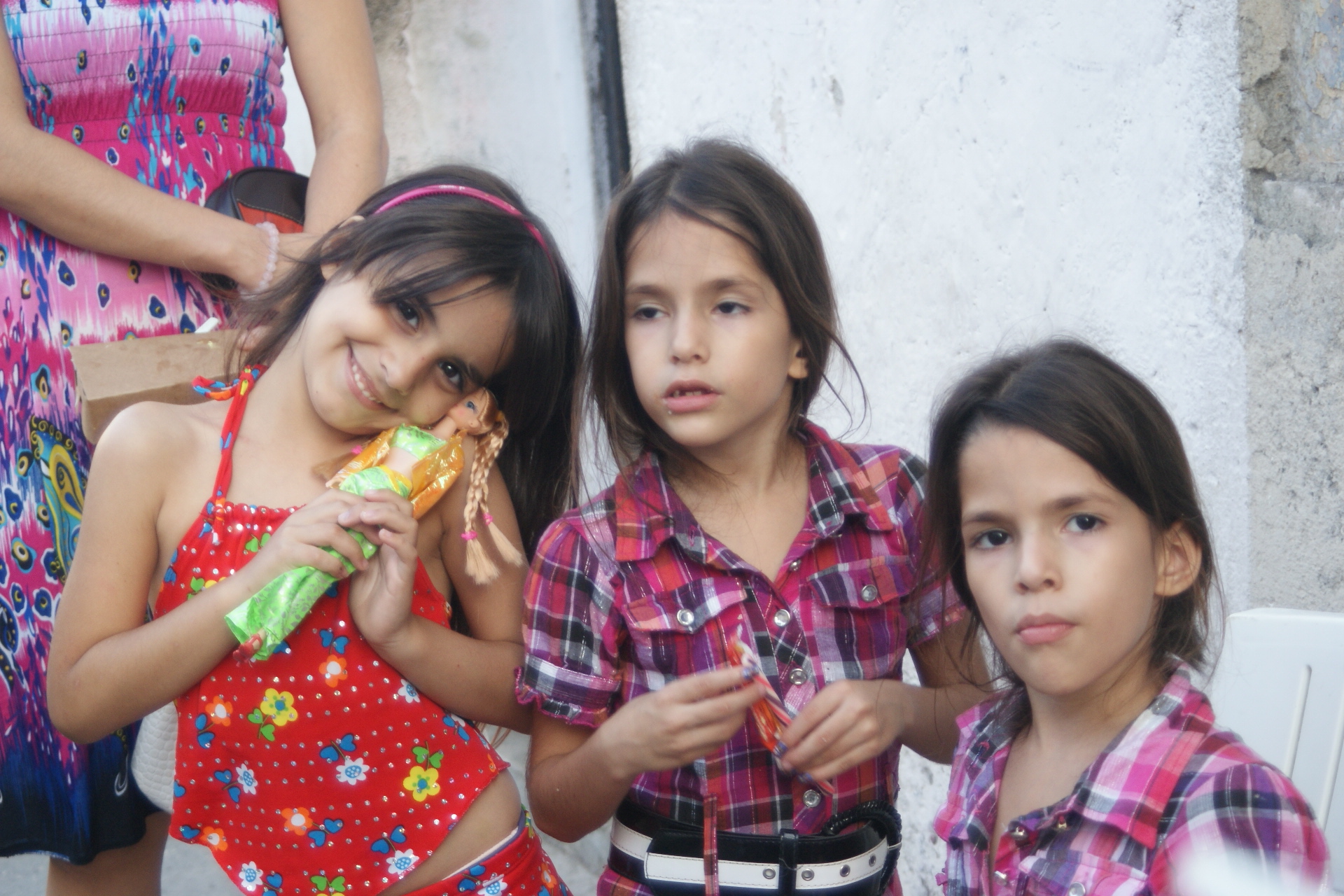
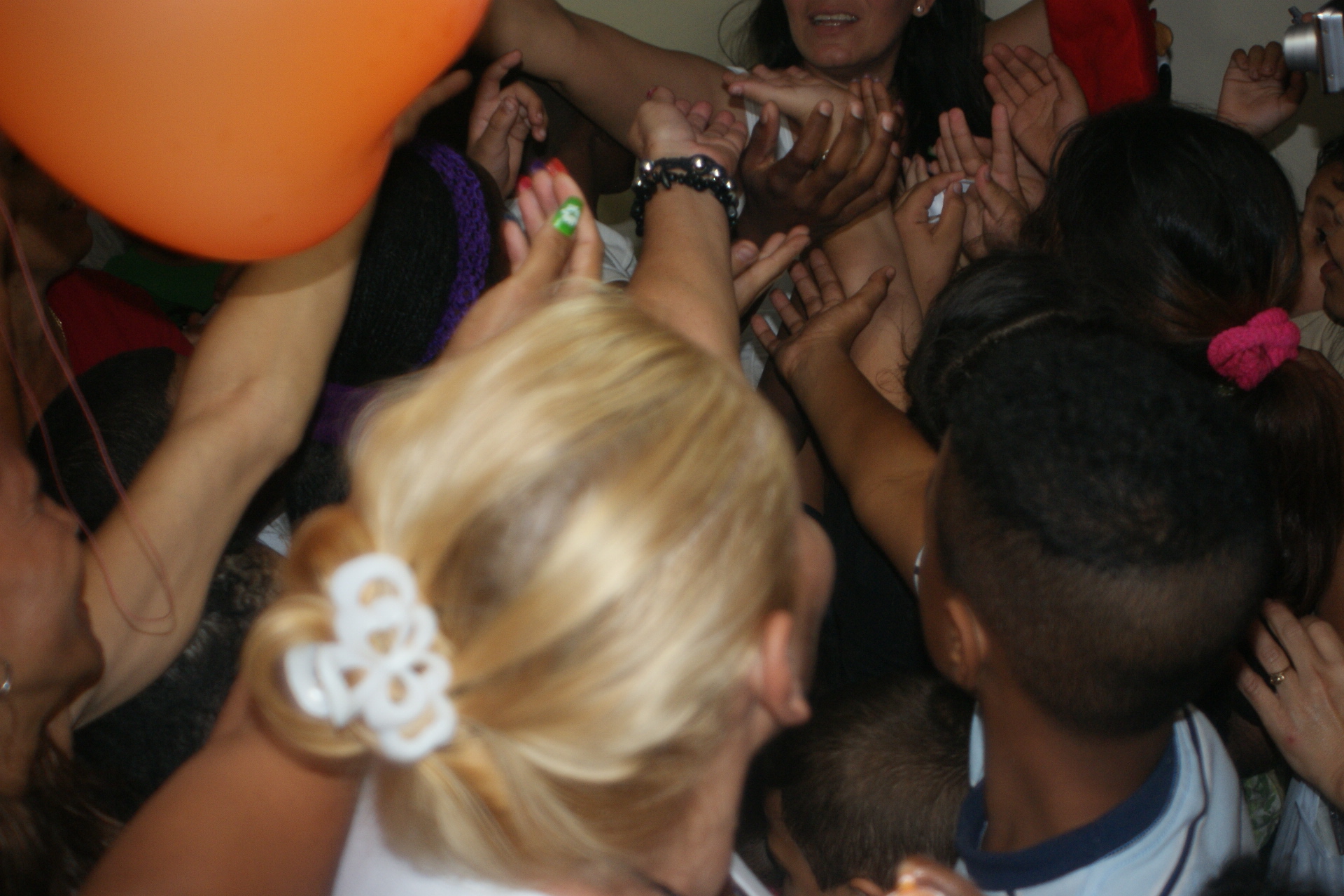
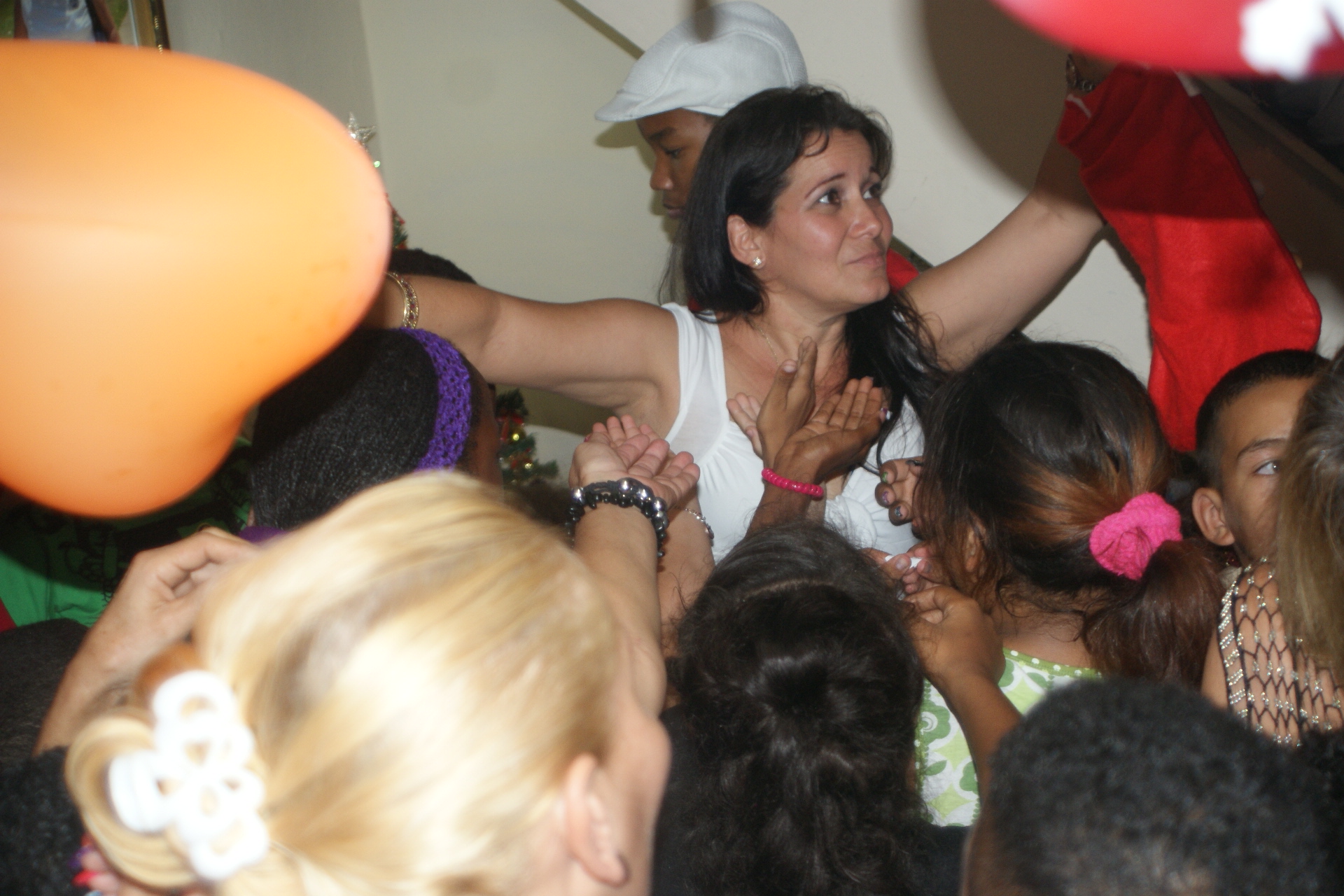
Although the boy forgot to put a note under the bed for the Three Kings, the father wrote: I don’t want any more governments that rob children of their innocence. It’s a few minutes before 2:00 when I walk into Neptune Street, towards the home of the late Laura Pollan, made God put here in the place of glory she deserves and that, she was not given here in Cuba, in her country, by the government, the dictatorship and the people from their cowardice.
A purulent stink massacres the afternoon with the patchwork of sun hidden behind grey clouds. It’s not cold, hot, or windy, and people seem to have taken the miserable landscape by assault. At the corner of Hospital Street the taxes that pre-date the Revolution are a symbol of the stopped development.
Some uniformed cops practically drag a man with his hands cuffed behind his back to a patrol car parked on the left. It’s the usual operation, almost a tradition with the Castro-Communist power around the block when there’s any activity in the house of the fallen leader of the Ladies in White, to block access to those interested.
So I put the car between two taxis, looking confused but trying to go unnoticed. The gentle little voices of the three girls in the back seat touch my soul to think that they stop us, they’re trying to block us from reaching for the celebration of Three Kings Day, that Fidel and the Revolution buried in the mire of his evil imperial chauvinism after taking power by means of arms.
Traffic continues and I cross near the police car taking a sideline at the face of of the man arrested feeling that it could be an opponent I know, but I couldn’t tell. I was wrong, I say again after having passed through the danger zone. Danger Zone! and again I say: I was wrong, a danger zone for those who think differently from Castro Communism is different from any place within the island. I stop the car in front of the door, the schoolteacher’s humble little house is full of children and mothers.
I take the camera and start shooting bullets of happiness for the children leads and deadly for the dictatorial power. A picture is worth a thousand words, say the sages of the photographs but today does not fulfill the adage because I can not translate the pain of the past in them. The soul flies and falls like a wounded bird on the crumbling reef of the Revolution.
First it was this: the toys were disappearing from the shops,the last ones were taken for a robber’s ransom by the revolutionaries. Then they appeared in the ration books followed by anxious days of waiting for the truck transporting them. Later moms and dads ran in disarray to the doors of the shops to form terrible lines of several-day of insomnia.
After some brainy revolutionary came up with the idea of changing the queue for the assault to the counter, then when the doors opened, if before that the push of the mob the shop windows didn’t shatter, the crowd threw itself on the counters that often were detached and mobbed the place. People went mad and fought until police intervened who were still respected because they hadn’t entered into the corruption of this.
The more educated and decent, not because of their grades befor for having a deeper training in respect, remained to the end and took the simplest toy for their children. They were usually the peasants, Christians, along with “people of rank” as the middle class is called in a derogatory manner by the Communist populace. As the years passed respect was forgotten and those who didn’t leave, banished into exile, were added to this rabble that accumulated in front of stores when the day of the Magi approached. Of course, the real magi — the wizards — were the parents and what they had to do to give their children a toy.
They have brought a clown with a tangerine for a nose. Children are crushed together, sitting on the floor, I think of the powers-that-be, the vandalism of the acts of repudiation, the beatings, handcuffing the Ladies in White and not letting their admirers pass, they close the street to traffic with uniformed officers and plainclothes officers at the corners, with the brazen and shameful statement that they are providing “protection”. Today they forgot the “protection” for children, infants whose parents do not share the ideas of the powers-that-be do not need “protection”.
Laurita is dressed in white and standing in front of the little ones to say in a few words about the reasons for the celebration. Mentioning the sensitive teacher, her mother, who for many years gave her heart and soul to the education of children, had her believed people and then the only alternative left to her by the ruthless Castro-power was to launch herself into the street with other wives and mothers asking freedom of their husbands and children sentenced to decades in prison for the sole crime of exercising their rights pertaining to the human condition and despite all that tragedy, the day of the Three Kings is not forgotten for the children tormented by the powers-that-be.
On mentioning the Ladies in White the Clown, scared, exclaims: “Oh, this has to do with the Ladies in White”. Listening to I smile with the joke and he says: didn’t you know?
I think of saying, “You’re at the center of things, you ended the antics, you’ll lose the tangerine nose”, but it seems he is really scared and if he gets more scared he could run out and forget about the children, he too; then there doesn’t seem anything left to do for the clown and I don’t know if it would work.
The funny man exclaims: “Well, I’m a Christian I have nothing to do with politics.” The justification of fear of power with Christianity: a magnificent and widespread way to avoid responsibility with social justice.
“Me too,” I tell him. I’m an Adventist.”
“You’re in trouble if they know. It’s Saturday,” he exclaims.
“’Suffer the little children to come unto me, for theirs is the kingdom of heaven,’ says the verse,” I say. The clown is unresponsive and is pondering his situation or perhaps in anticipation of possible future problems to continuing with his work. Will this Christian practice Christianity? I wonder. He doesn’t know that for God nothing is hidden and that the Christian works for God first and then for men. I remember the lesson of December 13 of the book Growing in Christ which says: Render therefore to all their dues… (Rom13:1-7).
“The Christian puts God first in all things, and evaluates every action and accountability from this perspective. So he opposes discrimination in any form, even if it is officially sanctioned. While Christians pay taxes, participate in civic duties, respect traffic laws and regulations on property and cooperate with civil authorities to control crime and violence.”How many times at the door of this house violence been committed protected by or exercised by the authorities? I wonder.
I remember it like it was yesterday: my mother one day, after many sleepless nights in front of one of the shops the managed the heroic triumph of bringing a blonde doll my sister. It came in a pink box and outside it said: “Lily”. A great feat by my mother working for the State in a pizzeria, sometimes days and others at night. More than 10 hours a day to receive a miserable salary at the end of the month.
Since children were forgetting the tender little notes left under the bed on the eve of Epiphany. Now the naive childish illusion of the coveted toy and the conformity that, the day after it was received, was absorbed by the Communist cannibalism. The imperial ideal Fidel Castro was accumulating in the dustbin of history the most naive traditions of a people.
The clown seems to have forgotten his shock and pulls out a puppet that makes children laugh. He puts on a big mouse head and makes fun competitions rewarded with toys, by a Santa Claus who has appeared at the time. He dances, jumps for joy and more laughter again swallows all the noise of the ruined city of zombies and the restless. The timid clown ends carefully and takes the children out to the sidewalk to take a picture.
I’m afraid that a Communist mob of security agents and university students will appear, as officialdom alleges and that all will end in tragedy. Adults are placed in front of children to prevent one of the cars that drive more than 30km/hr from running over anyone. We get the photo and return inside. It’s time for the presents. The Kings banished into exile by the dictatorship and other people of good will have provided a gift for each child, and they do not have to shout a political slogan, put a pioneer scarf around their necks, reciting a combat poem or express hatred toward the U.S. The little blond haired boy, son of the opponent who disappeared in suspicious circumstances is rolling a beautiful truck down the sidewalk in the company of another toddler.
“It’s the first toy he’s received since he was born,” says his mother.
The memories continue to flow, as the process was advancing today Communism the Day of the three Kings and the toys were disappearing from the tradition and the stores. At some point there were replaced by an emerging clandestine artisan world after the State was reluctant to acknowledge the need.
It is not for the common good of the children but to raise taxes before the inability of the State to control the theft of raw materials. So some children could play with rustic toys, while others, children of honorable uncorrupted parents looked on with desire and sadness.
Berta Soler and Laurita finish handing out the the gifts and a kiss to each child. Now the photos speak, but not more than a thousand words because not as many little Cuban children cry without a toy because their parents are not corrupt, or mixed with the indignity to the denigration of their humanity; for whom a rag doll, horse and wooden machete, yoke of oxen made from Coke bottles and cart made from an empty sardine can, of a day gone by when for rich and poor there was for a day of kings.
The sun is setting and by the gray the yellow swallows the white and the shadows of the architectural blog of the revolutionary feud have been dragging and deforming to form grotesque figures, too rancid to assimilate without reluctance. The children ended the raffle and the pinata spilled from its belly candy and dolls that disappeared in the desperation of cries and little arms that extended until they touched their lost dreams.
Later, when the sun is almost buried in the horizon, the cake that was hiding in cardboard boxes and jam was enjoyed by everyone and eaten with great relish. The clown sitting in a secluded little place remained undaunted as if in a state a nostalgic ecstasy he had drunk, or a court had sentenced him to one hundred years of solitude. Then I saw him pick up his head and his puppet mouse and head down on the sidewalk while I followed him with my eyes to the corner praying to God so he would not lose his tangerine nose the the hands of state security and could continue to make Cuban children laugh.
Agustin Lopez
January 7 2013
 I offer my open hands to a friend from childhood, a friend I knew when the fair only offered pale convulsed dreams. It was around this time that my friend insisted on weaving hopes against the prevailing winds that announced storms gathering at the end of the street, the wind that in his rise seemed dotted with vivid chaotic colors, beautiful shades that fled the rotting trash coming to live in the plaza. In my dreams — I distinctly remember — my friend rose to an immense height and there, higher than the pigeons fly, recorded his remote signs in the heavens. Then the plaza was flooded with that smell of new dreams.
I offer my open hands to a friend from childhood, a friend I knew when the fair only offered pale convulsed dreams. It was around this time that my friend insisted on weaving hopes against the prevailing winds that announced storms gathering at the end of the street, the wind that in his rise seemed dotted with vivid chaotic colors, beautiful shades that fled the rotting trash coming to live in the plaza. In my dreams — I distinctly remember — my friend rose to an immense height and there, higher than the pigeons fly, recorded his remote signs in the heavens. Then the plaza was flooded with that smell of new dreams.
